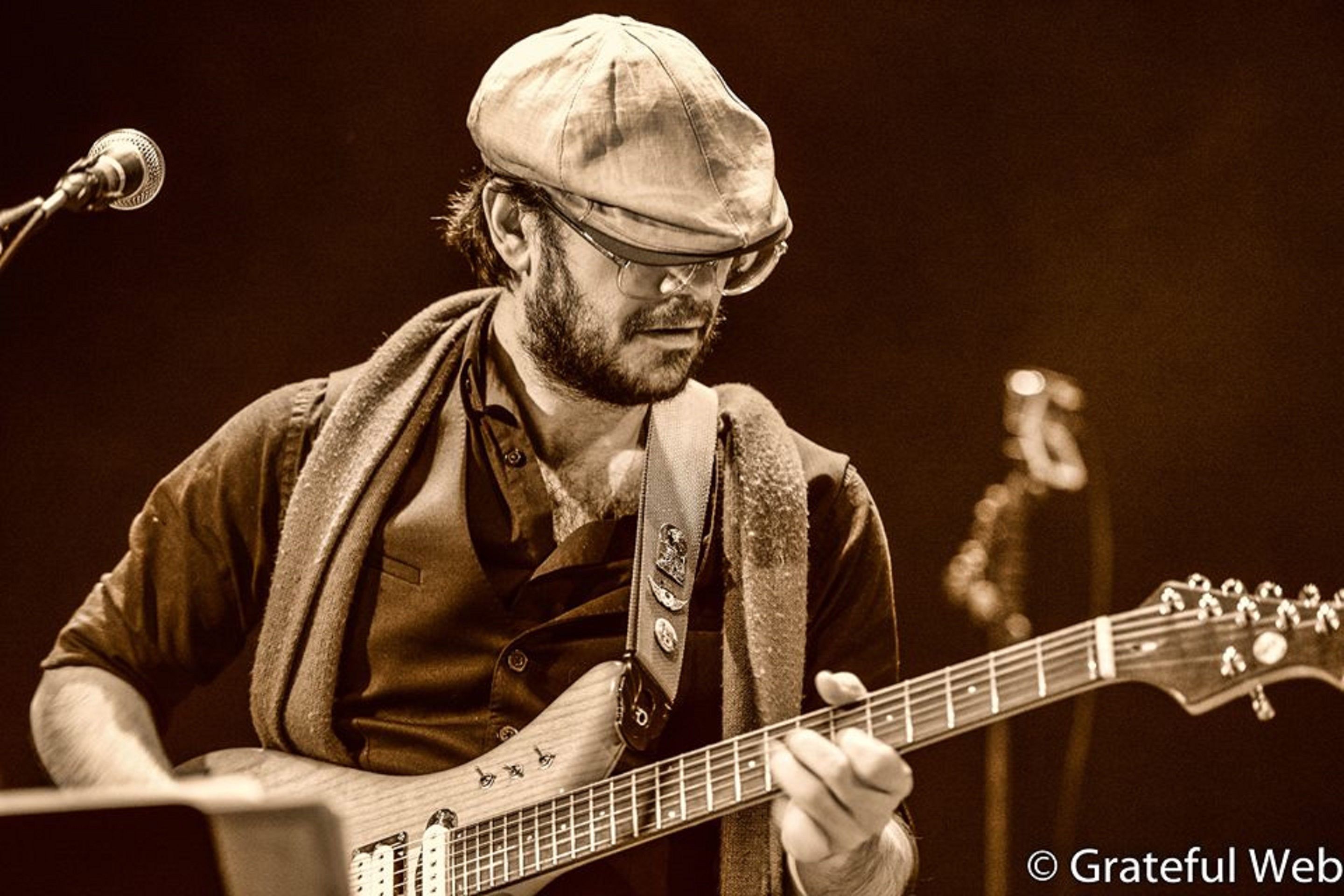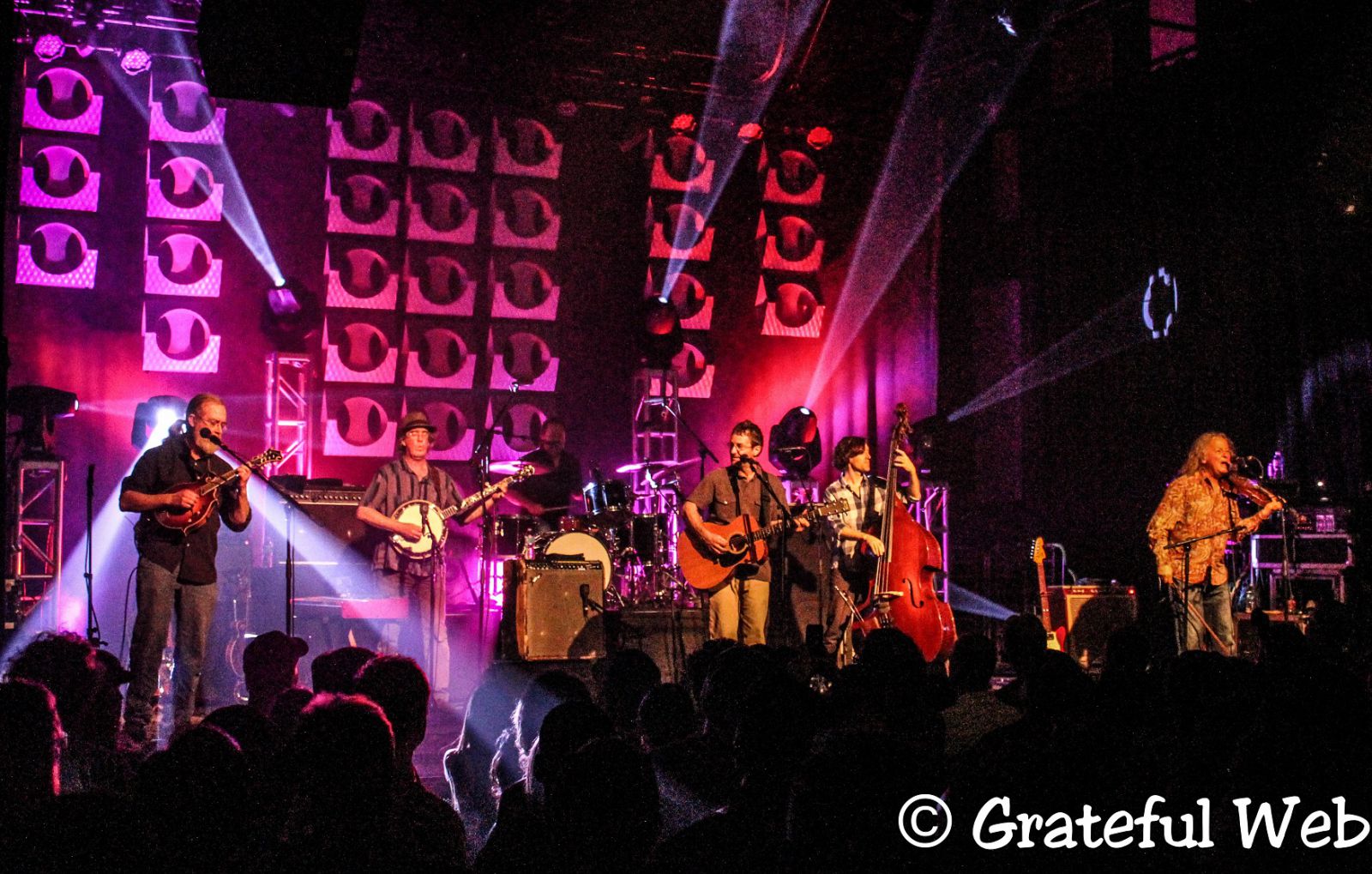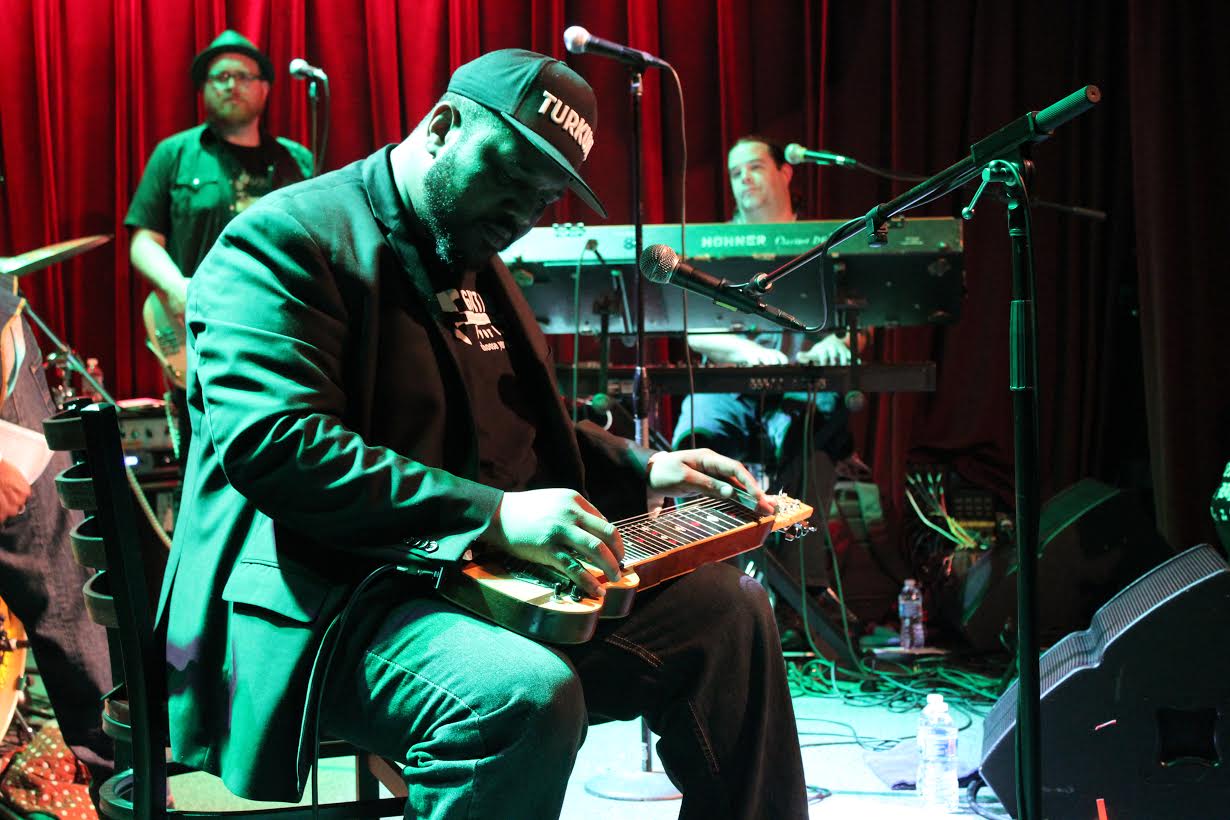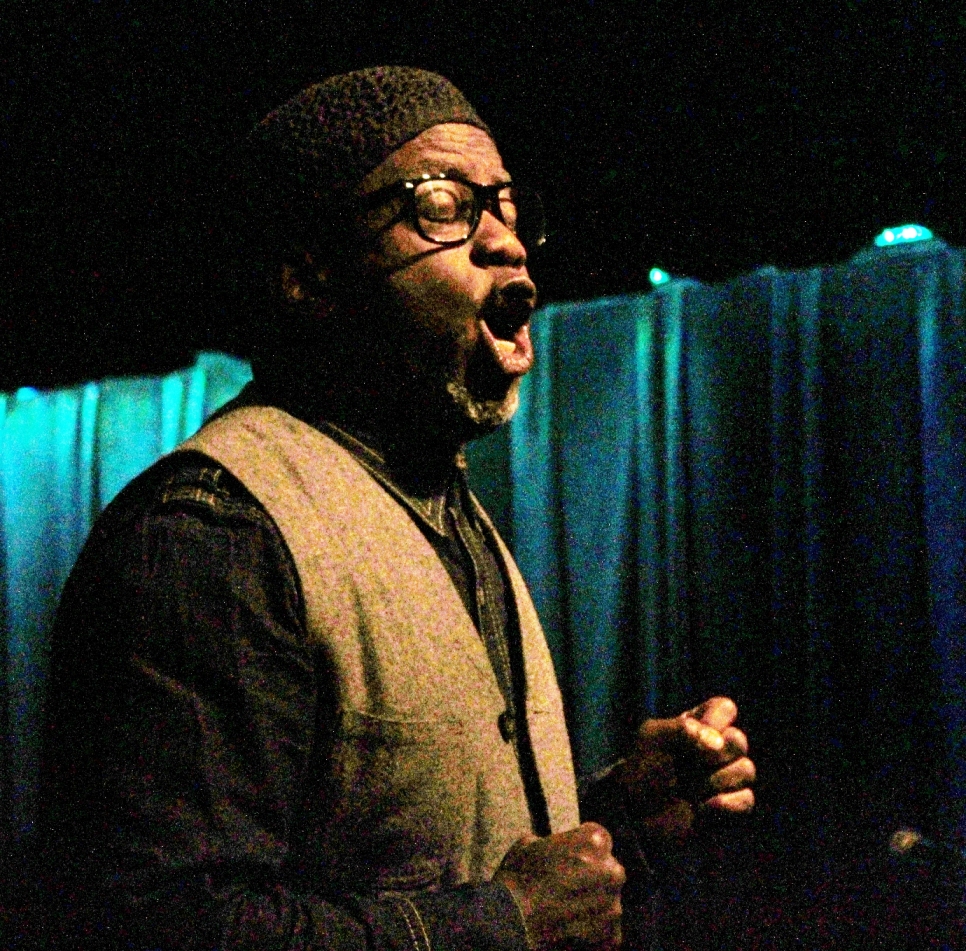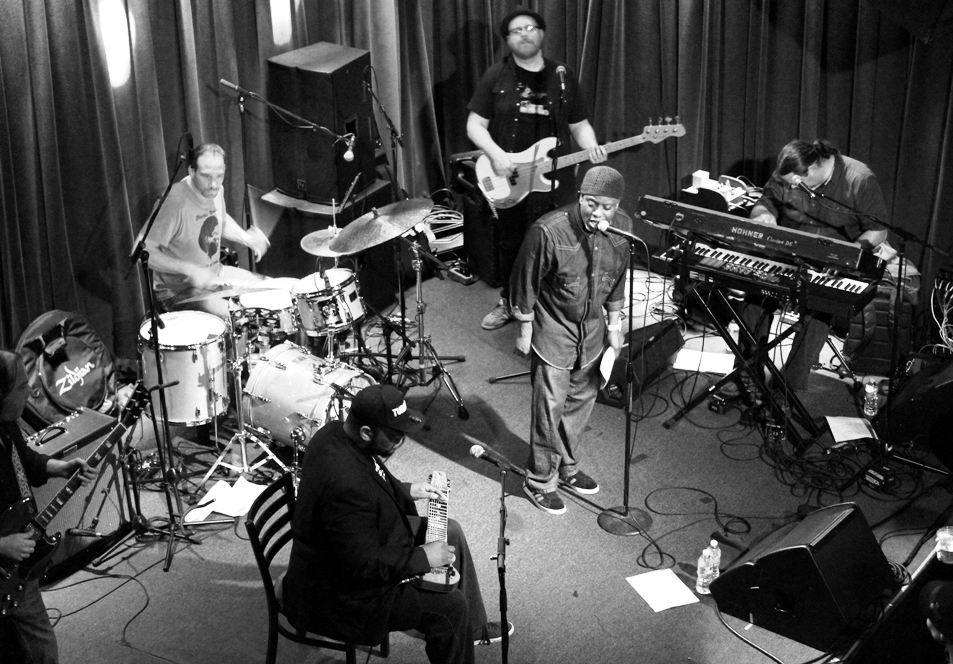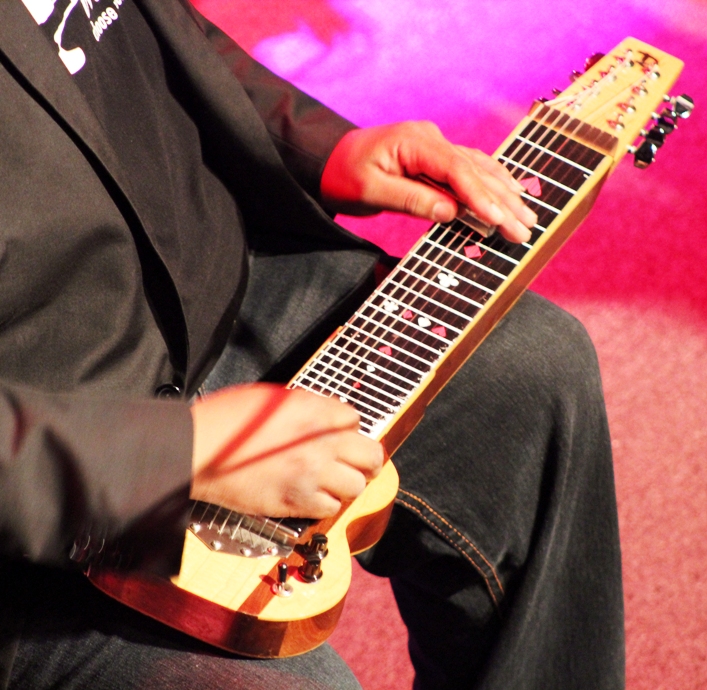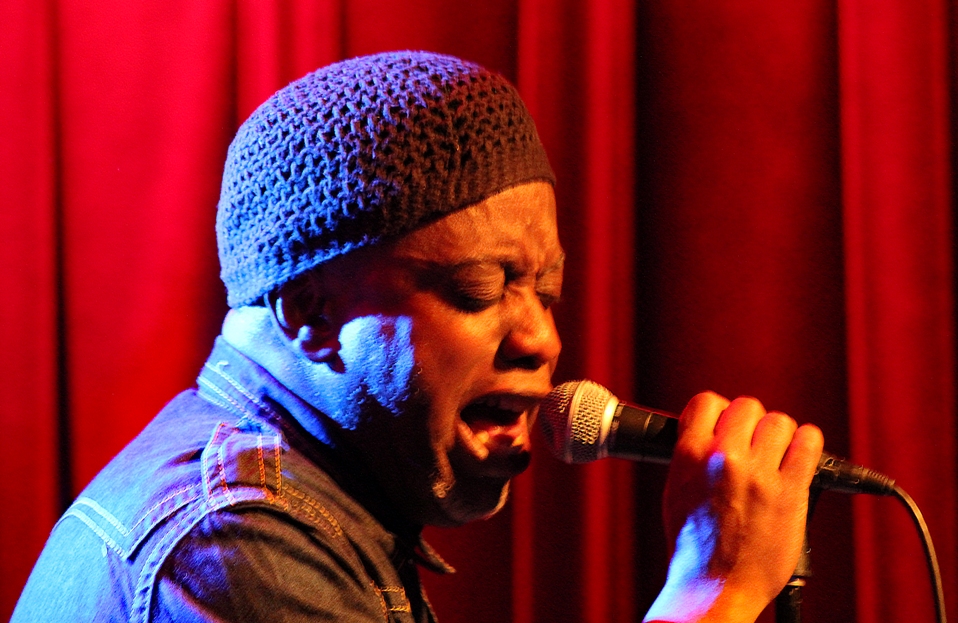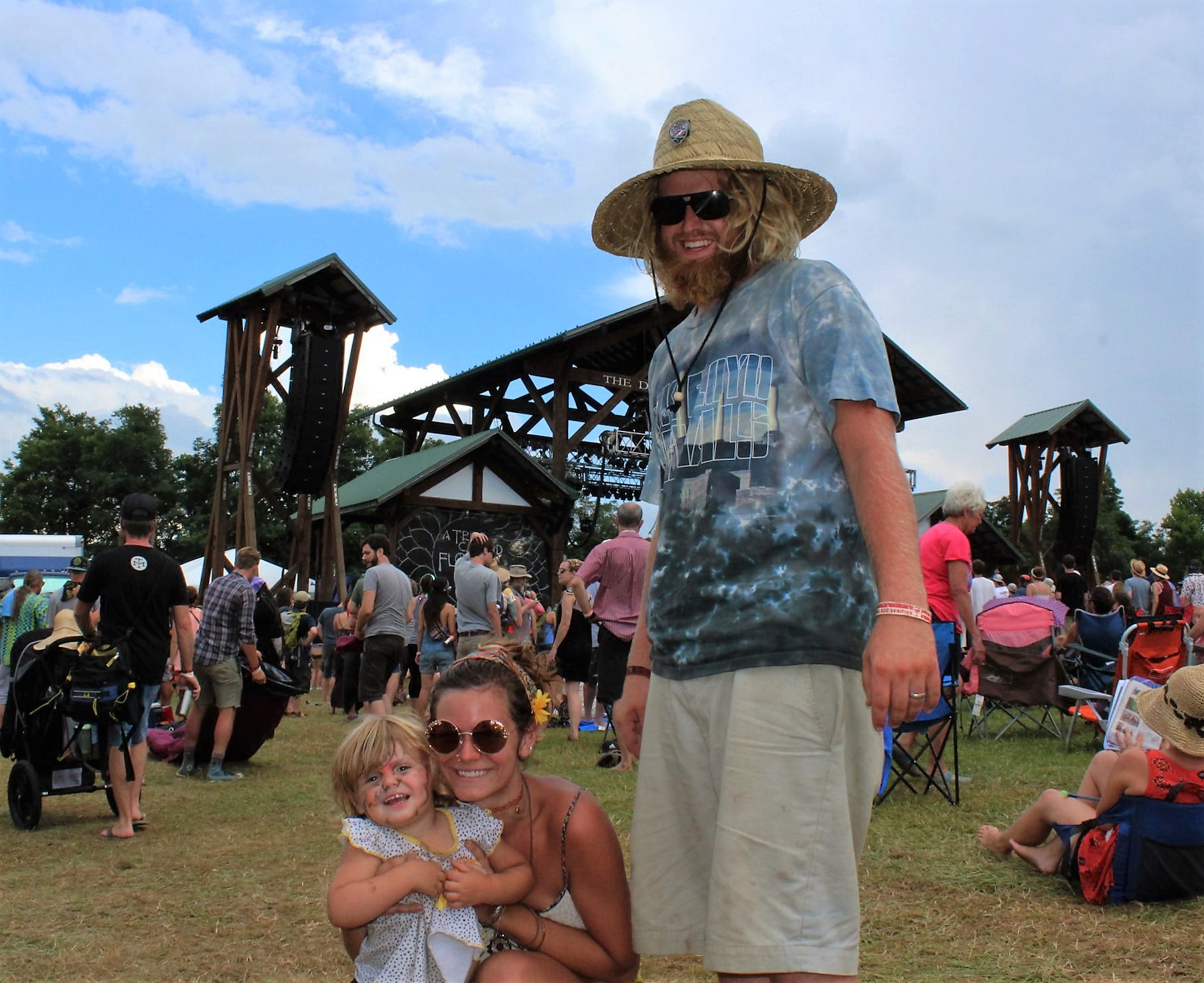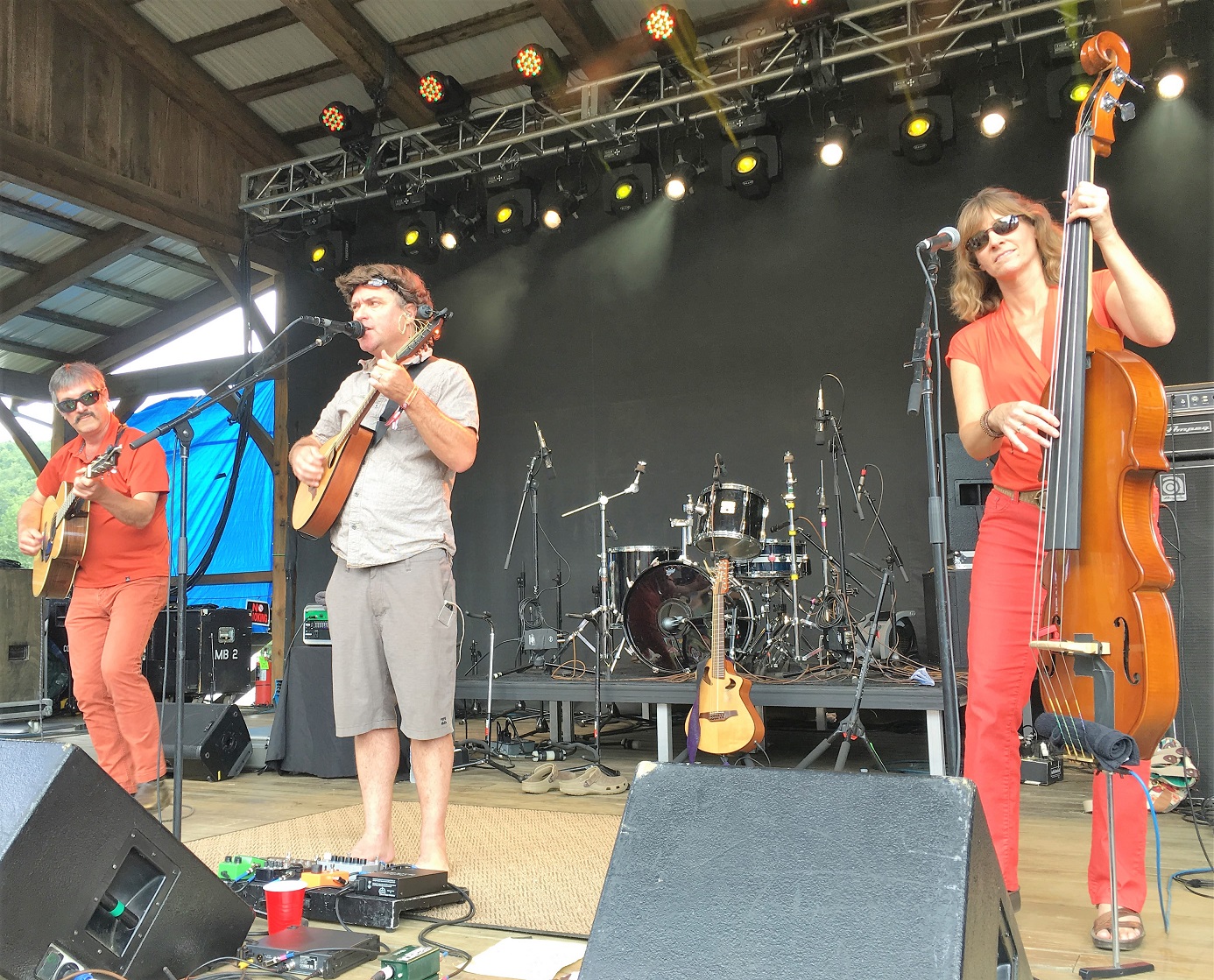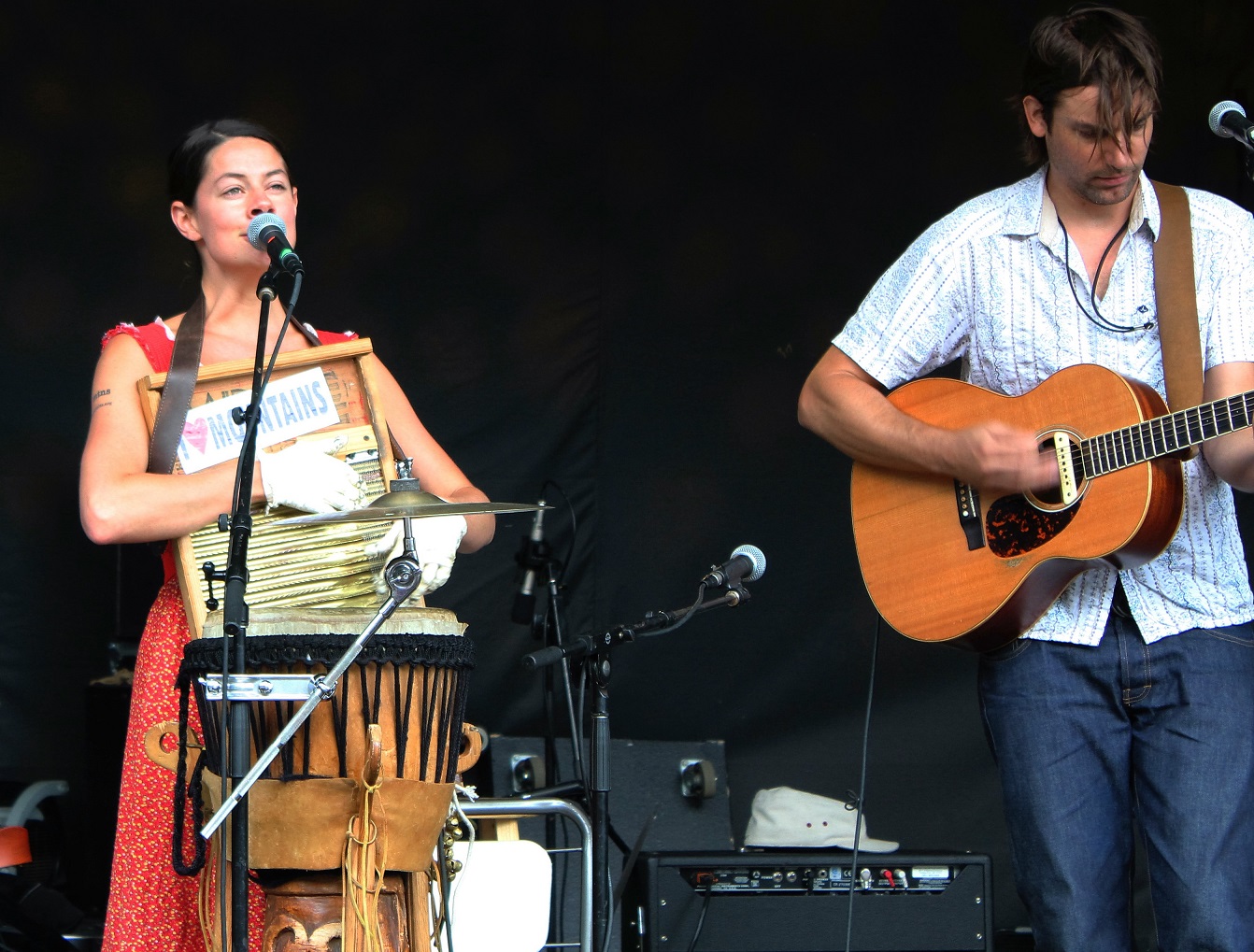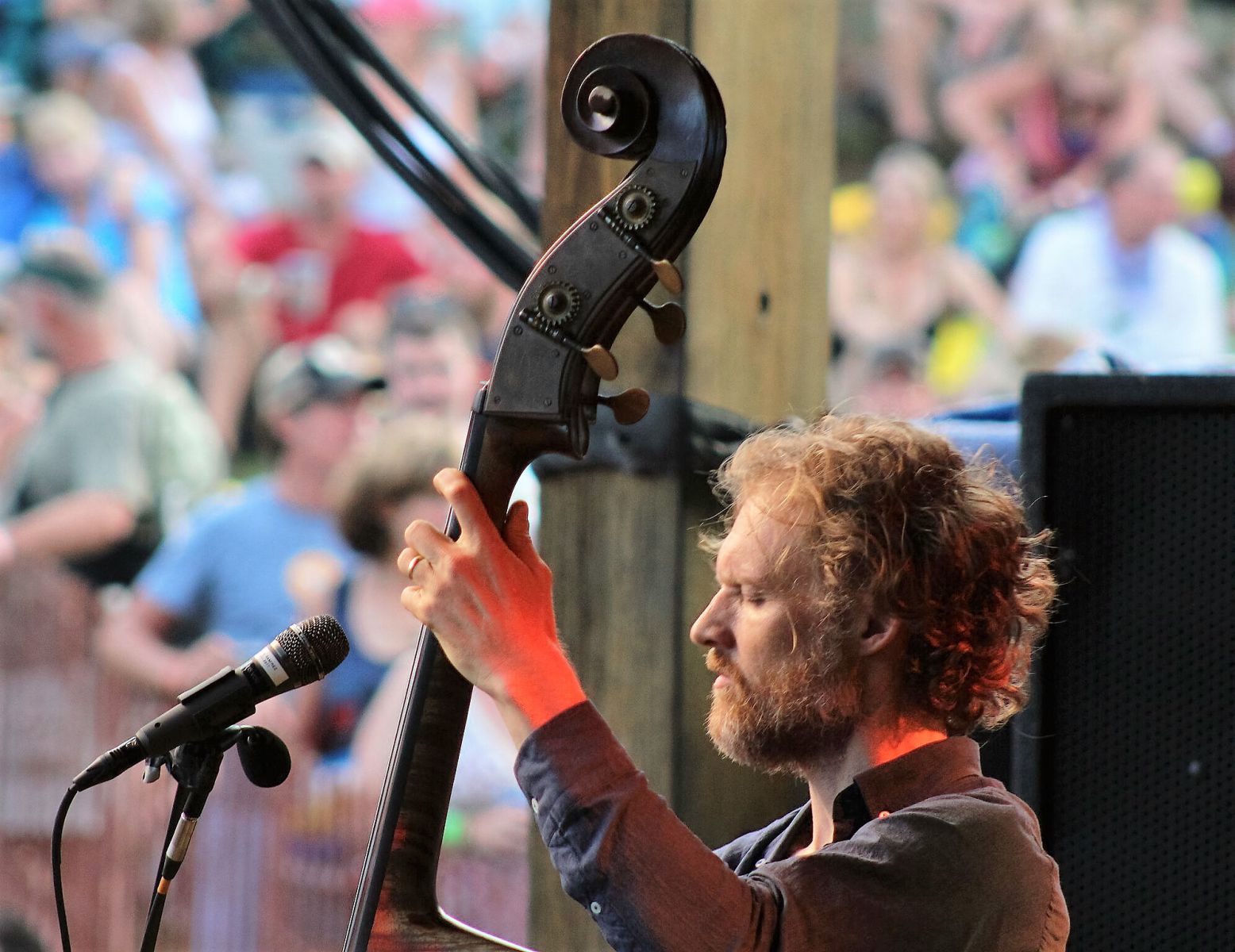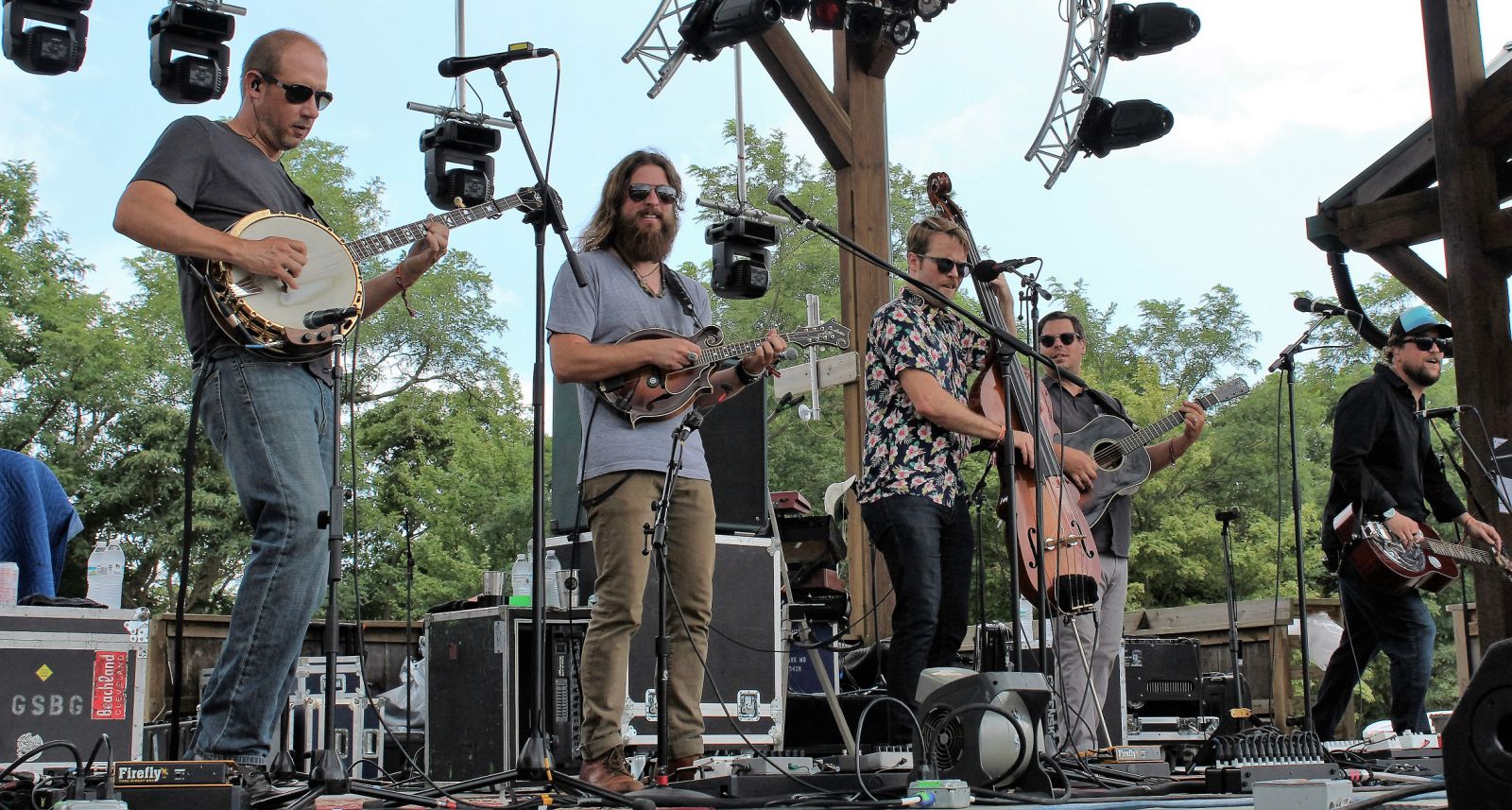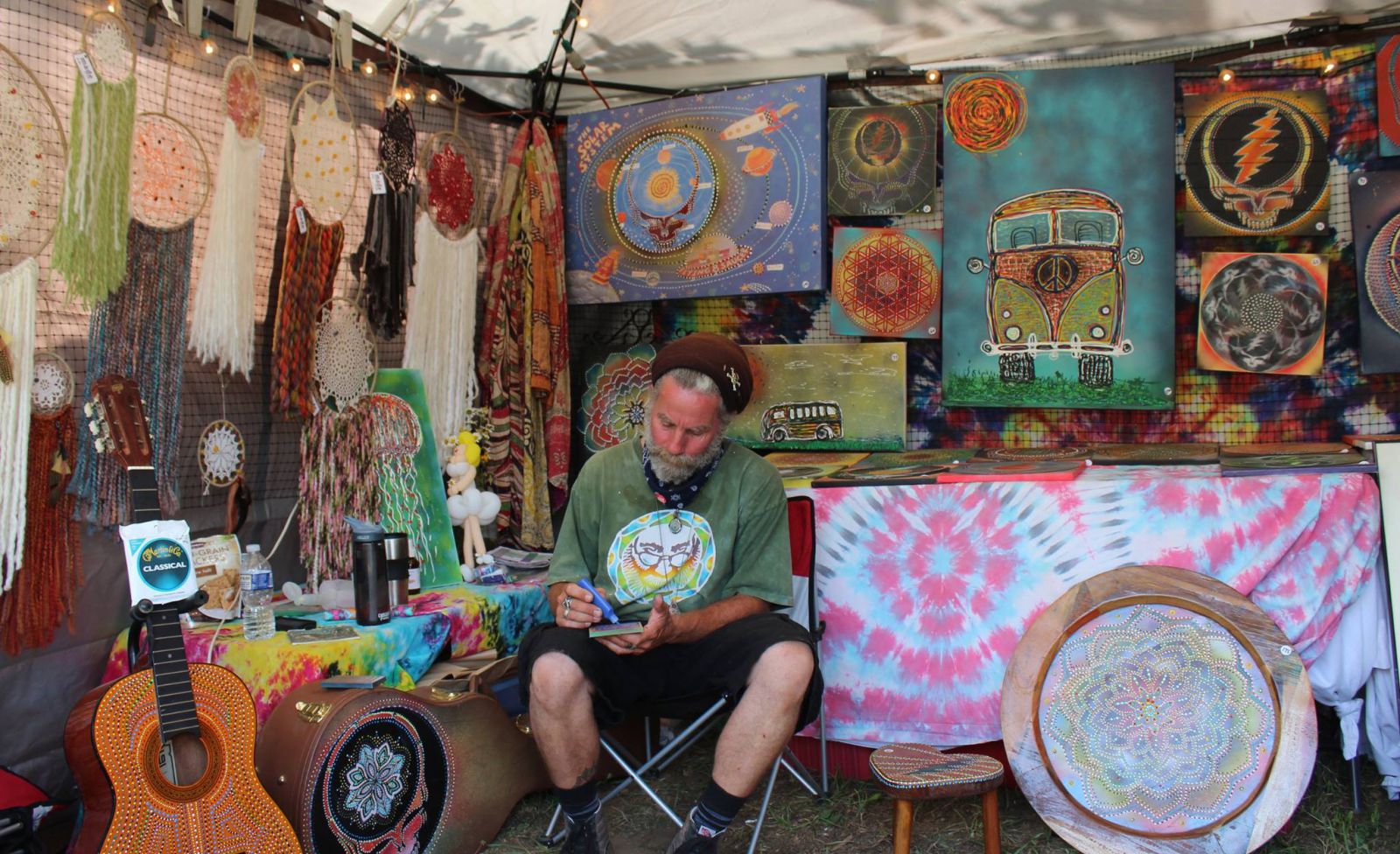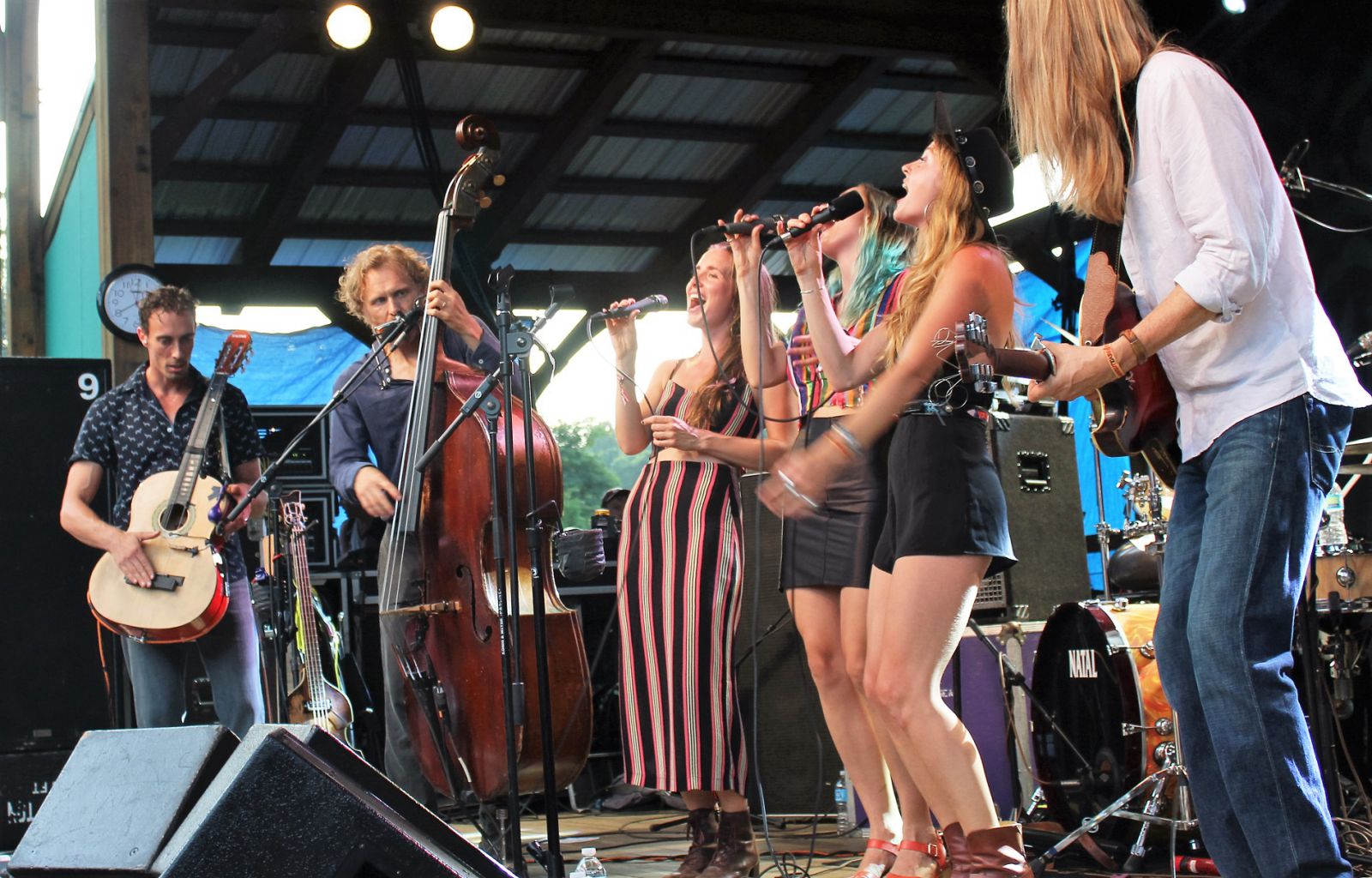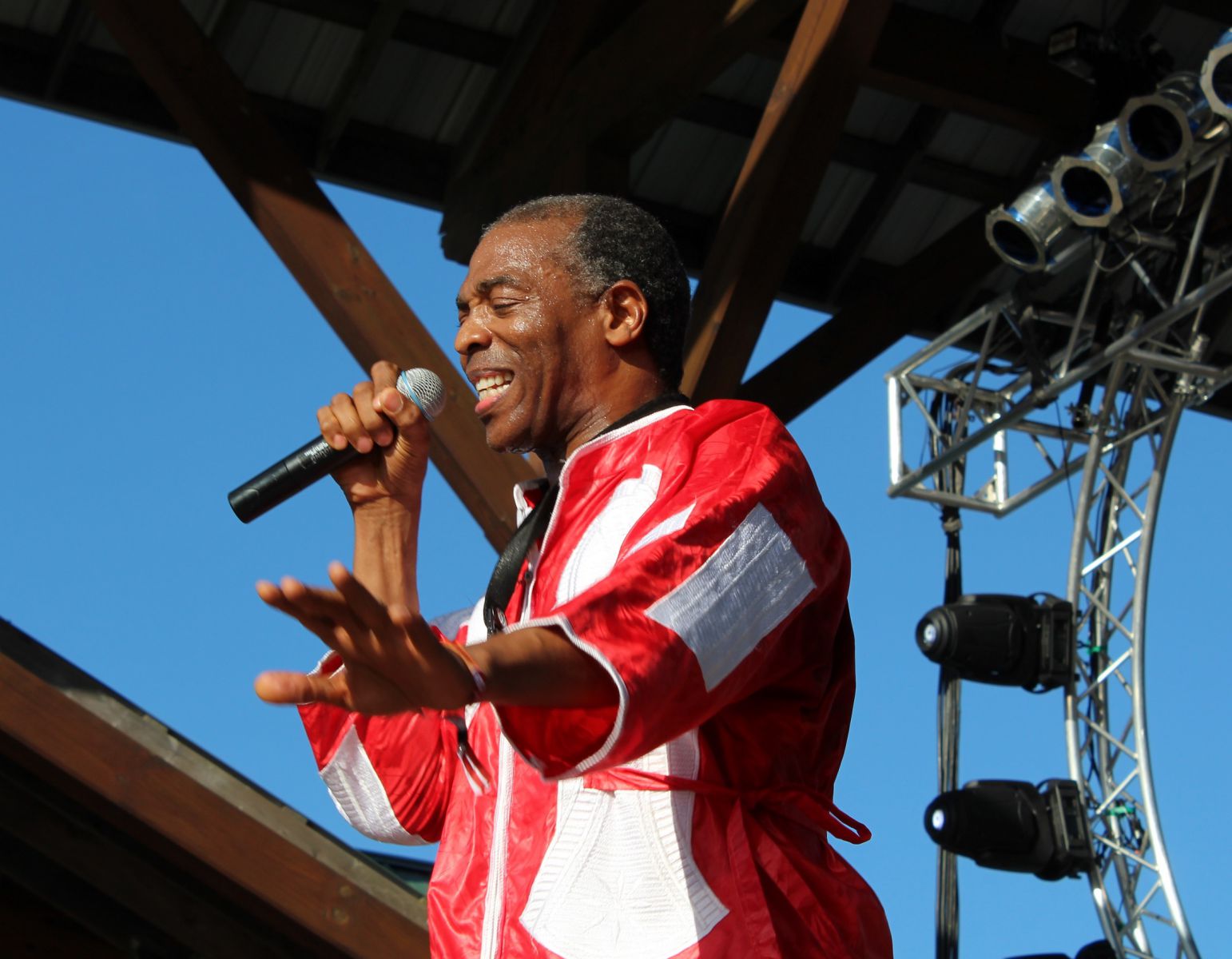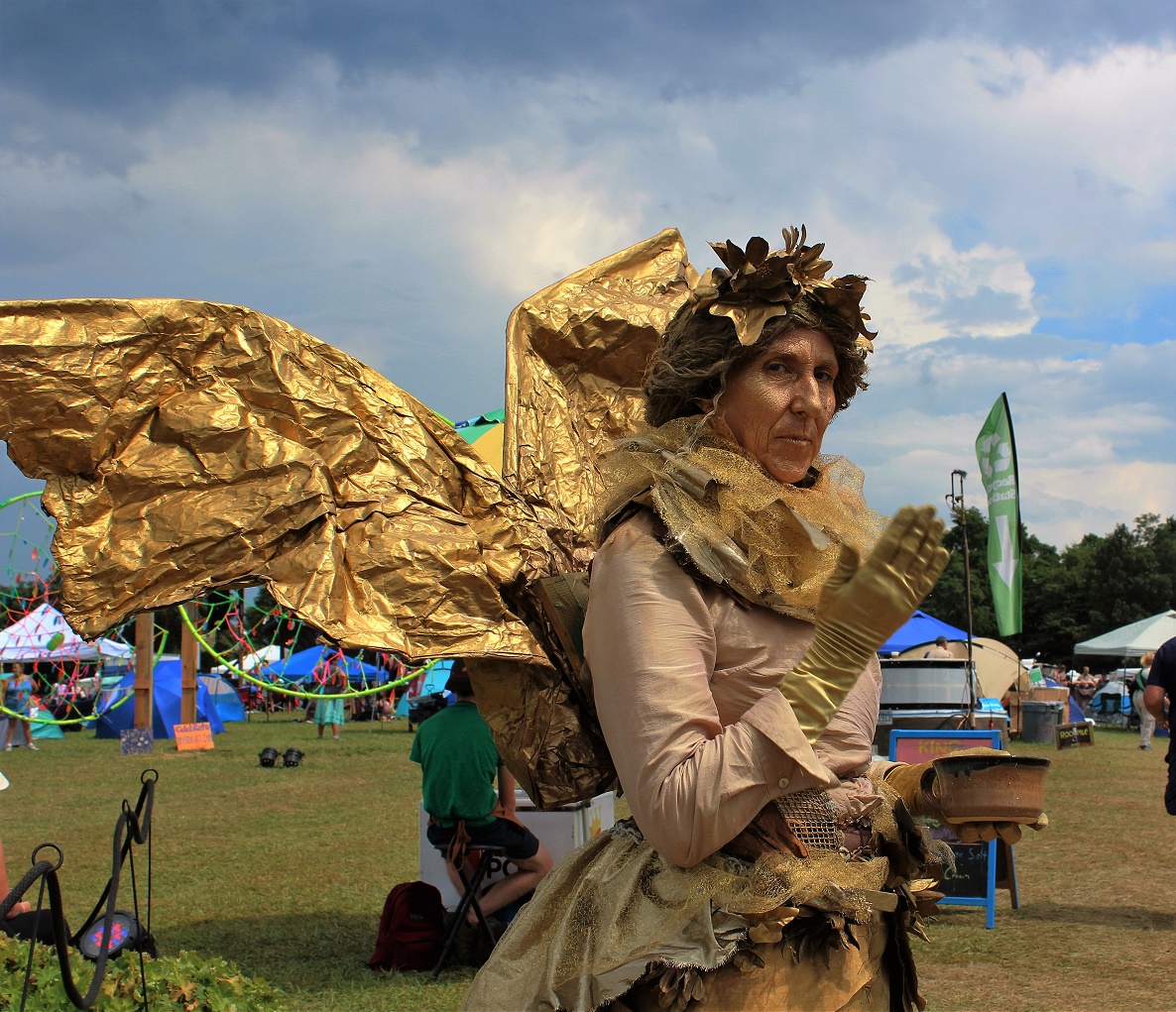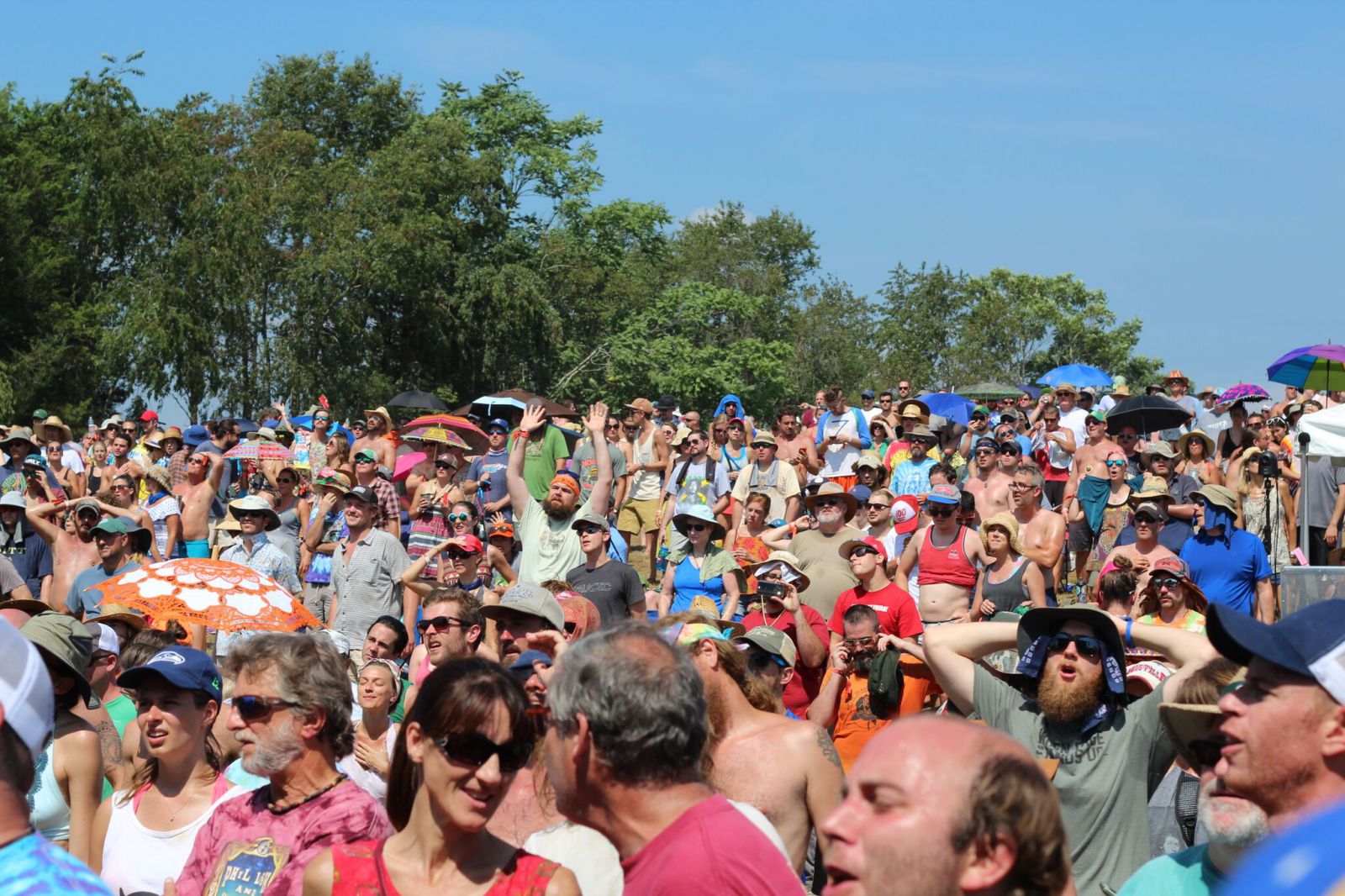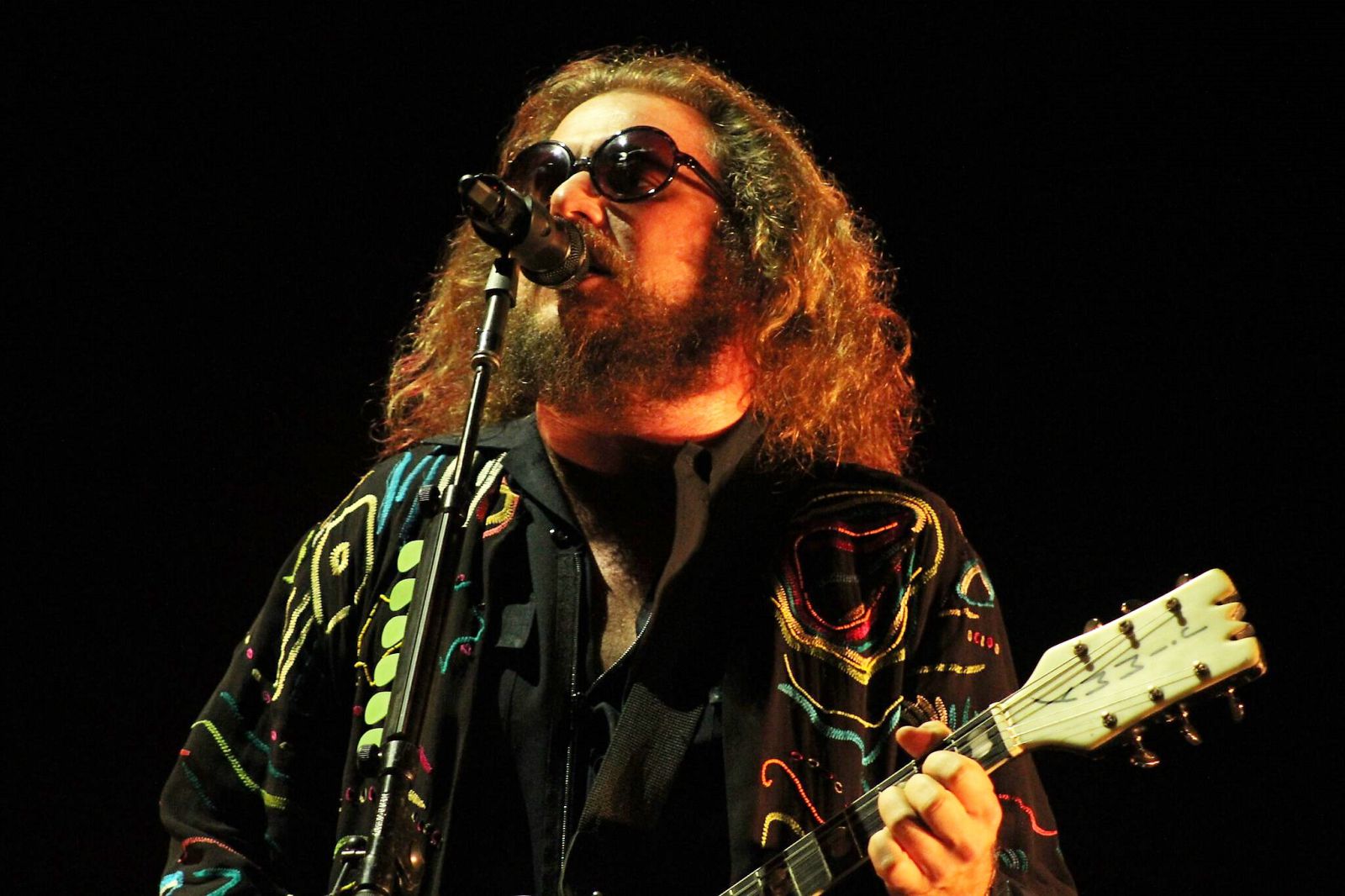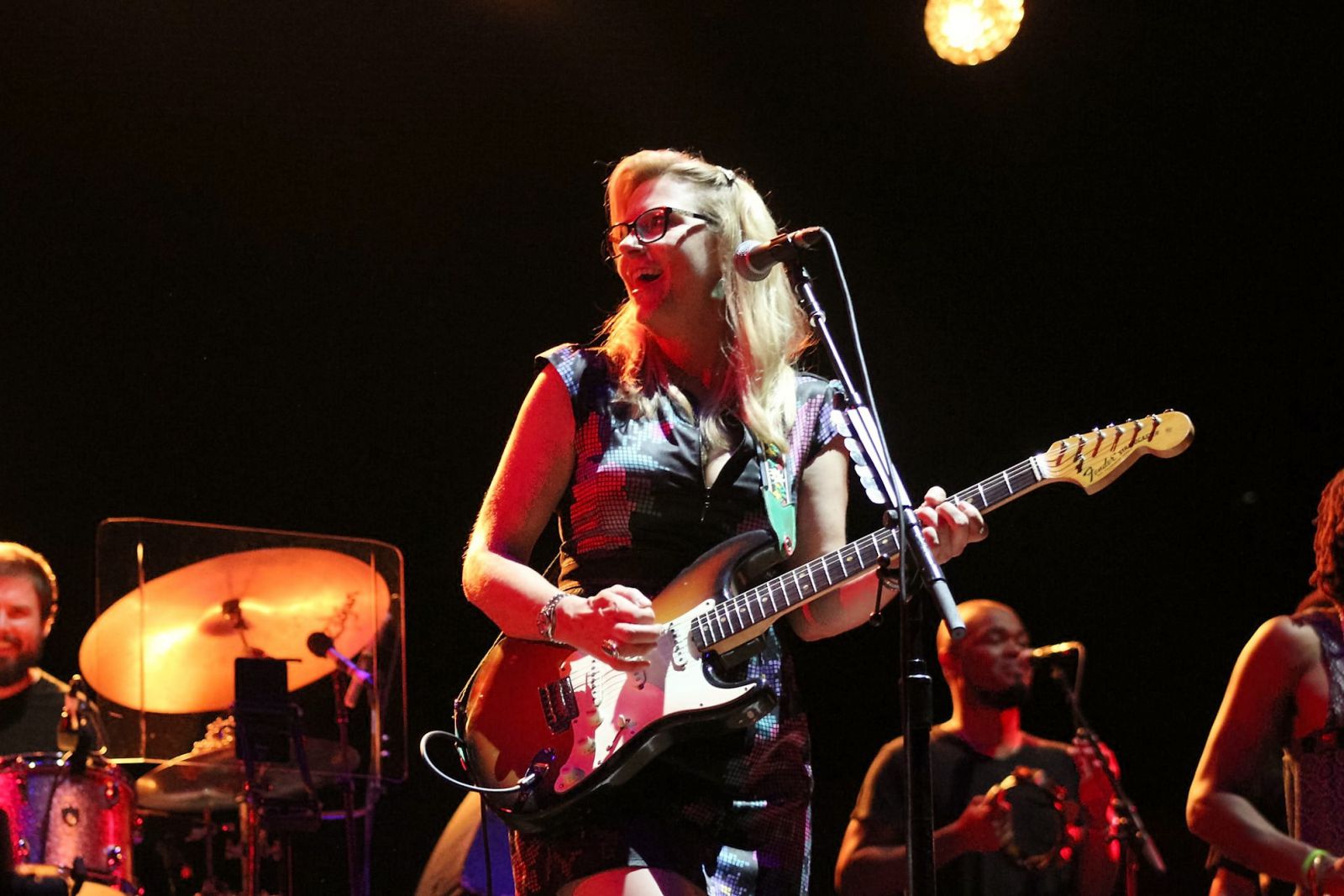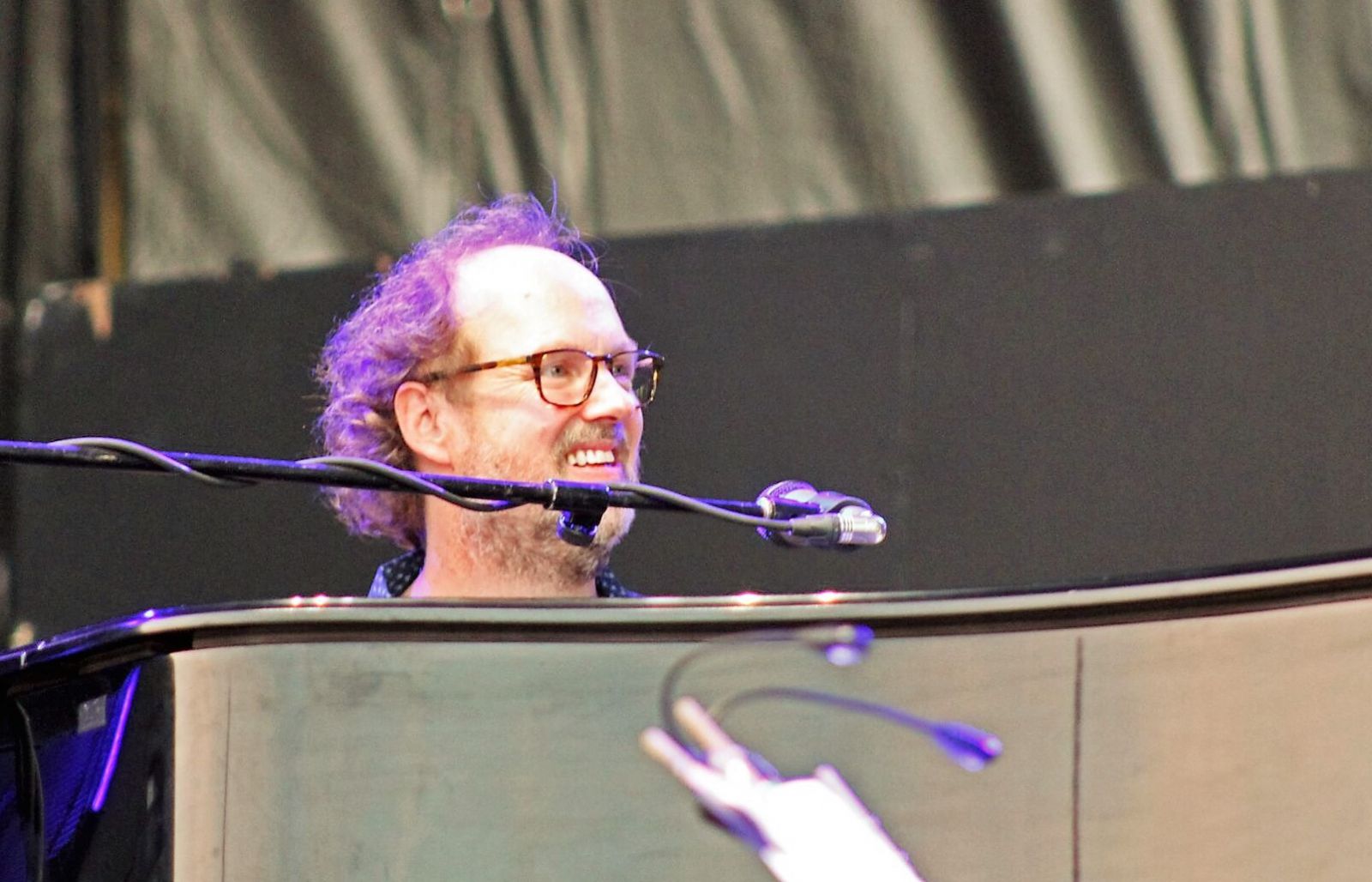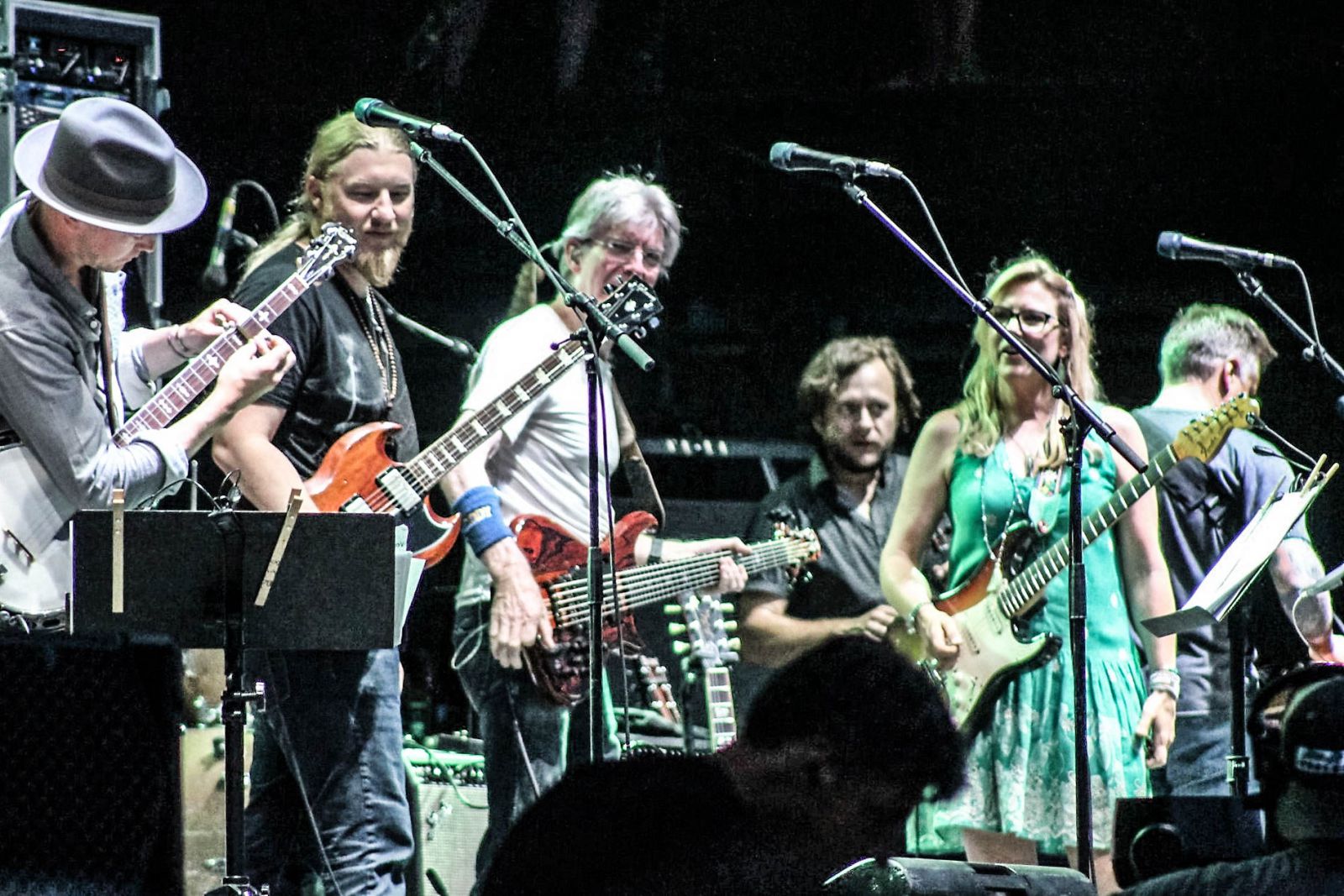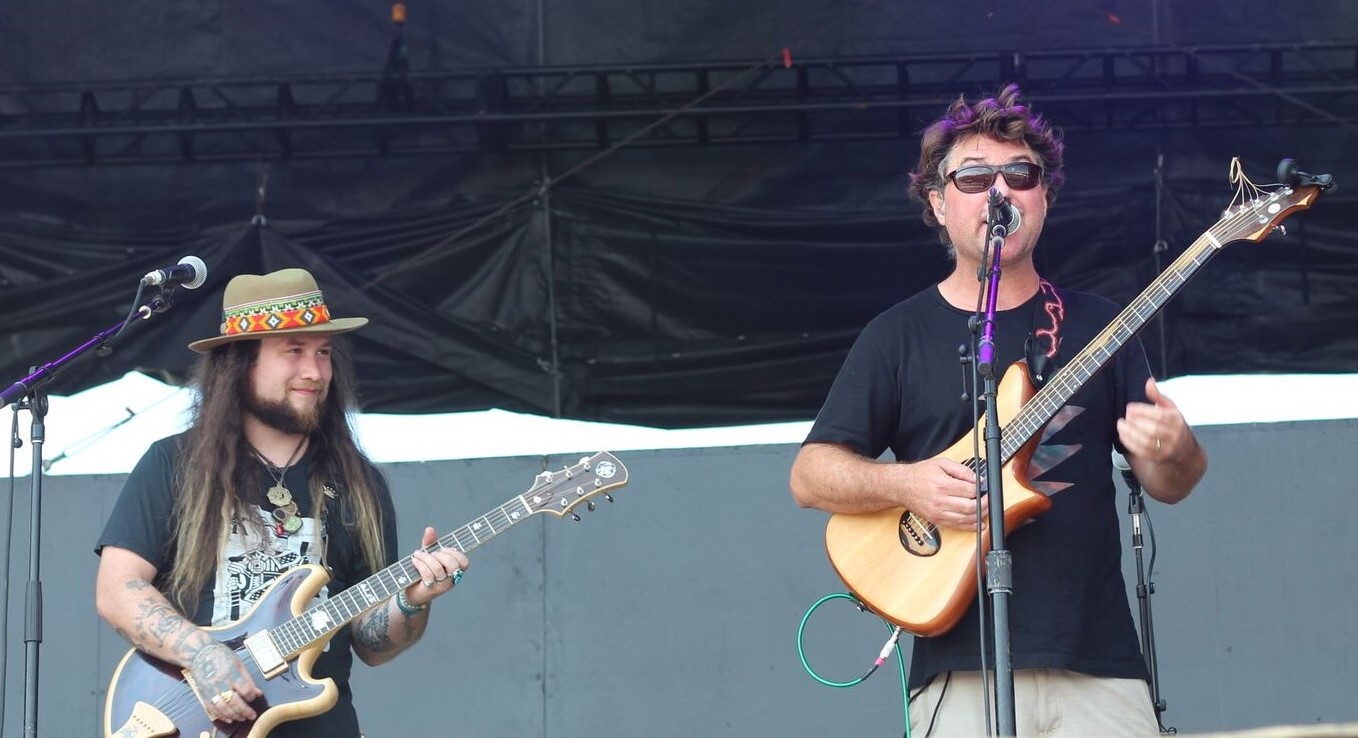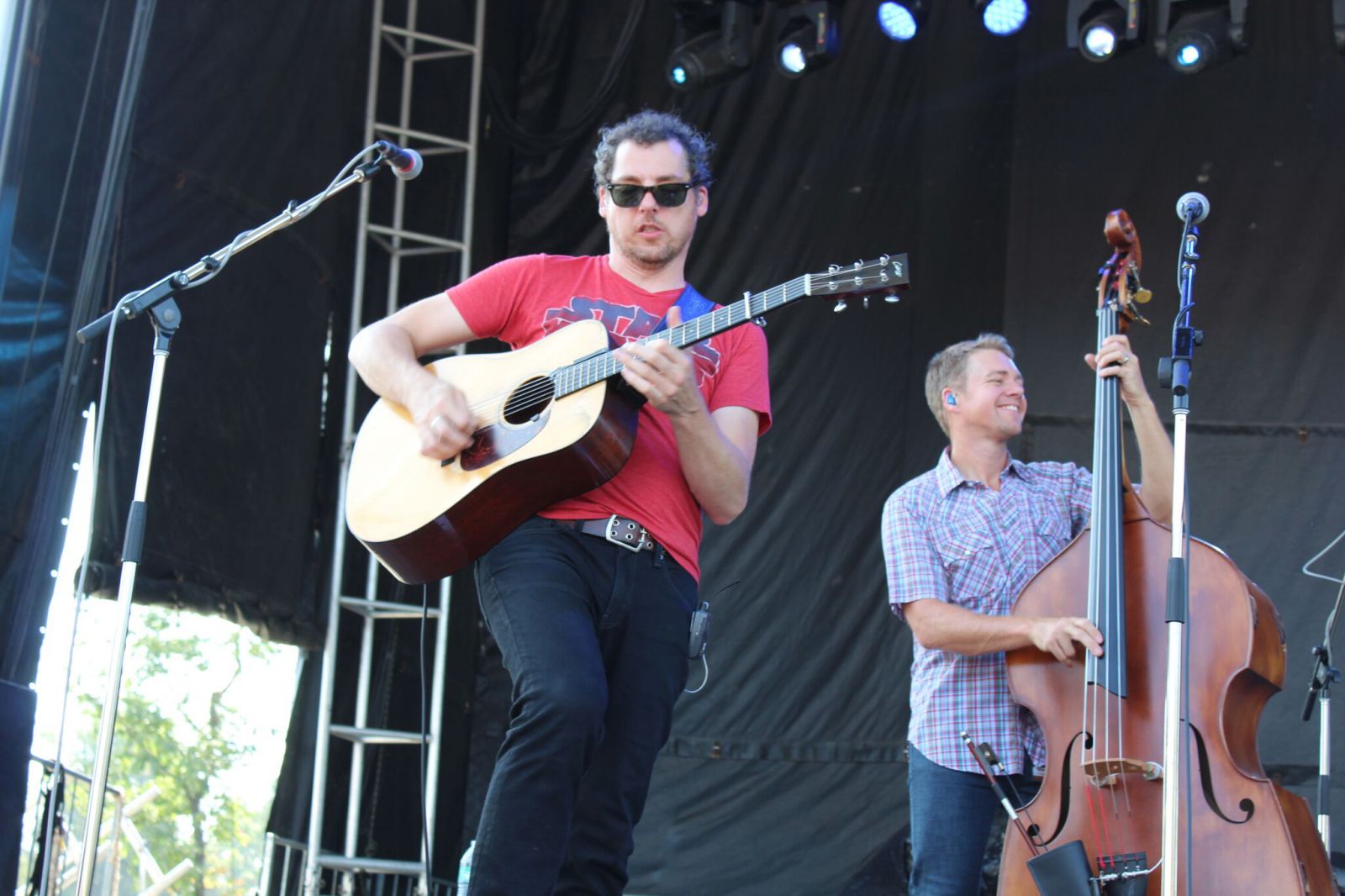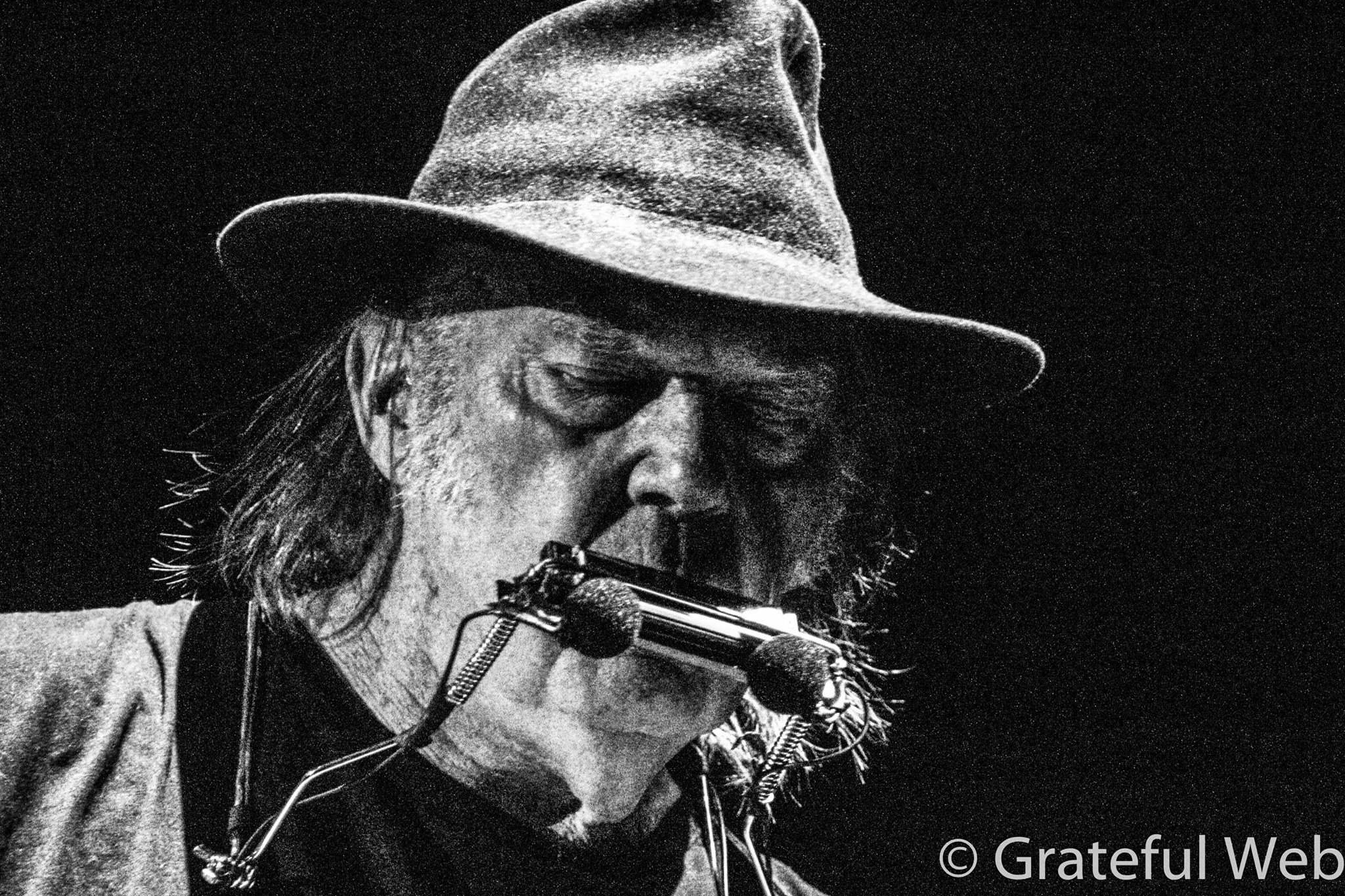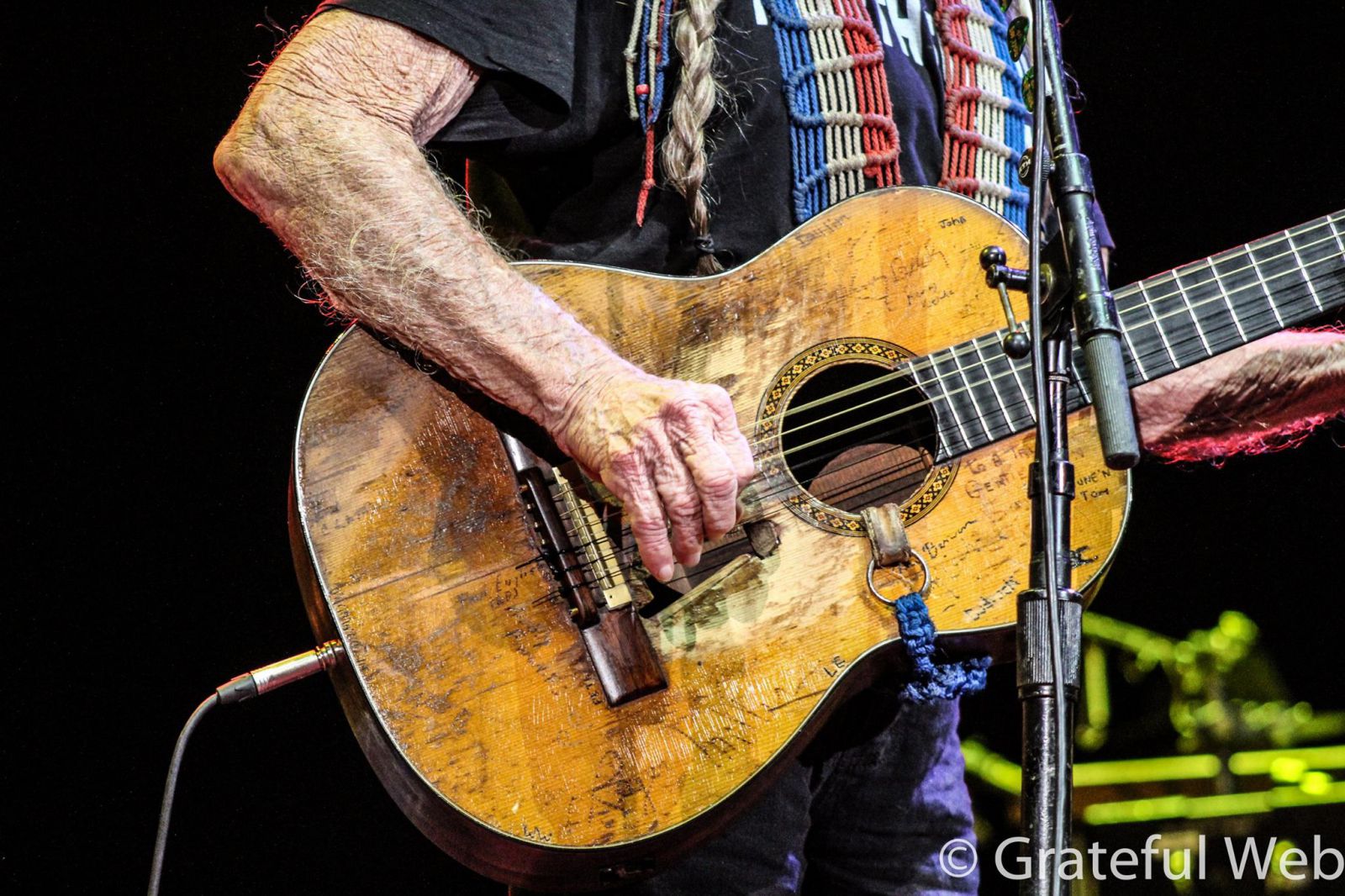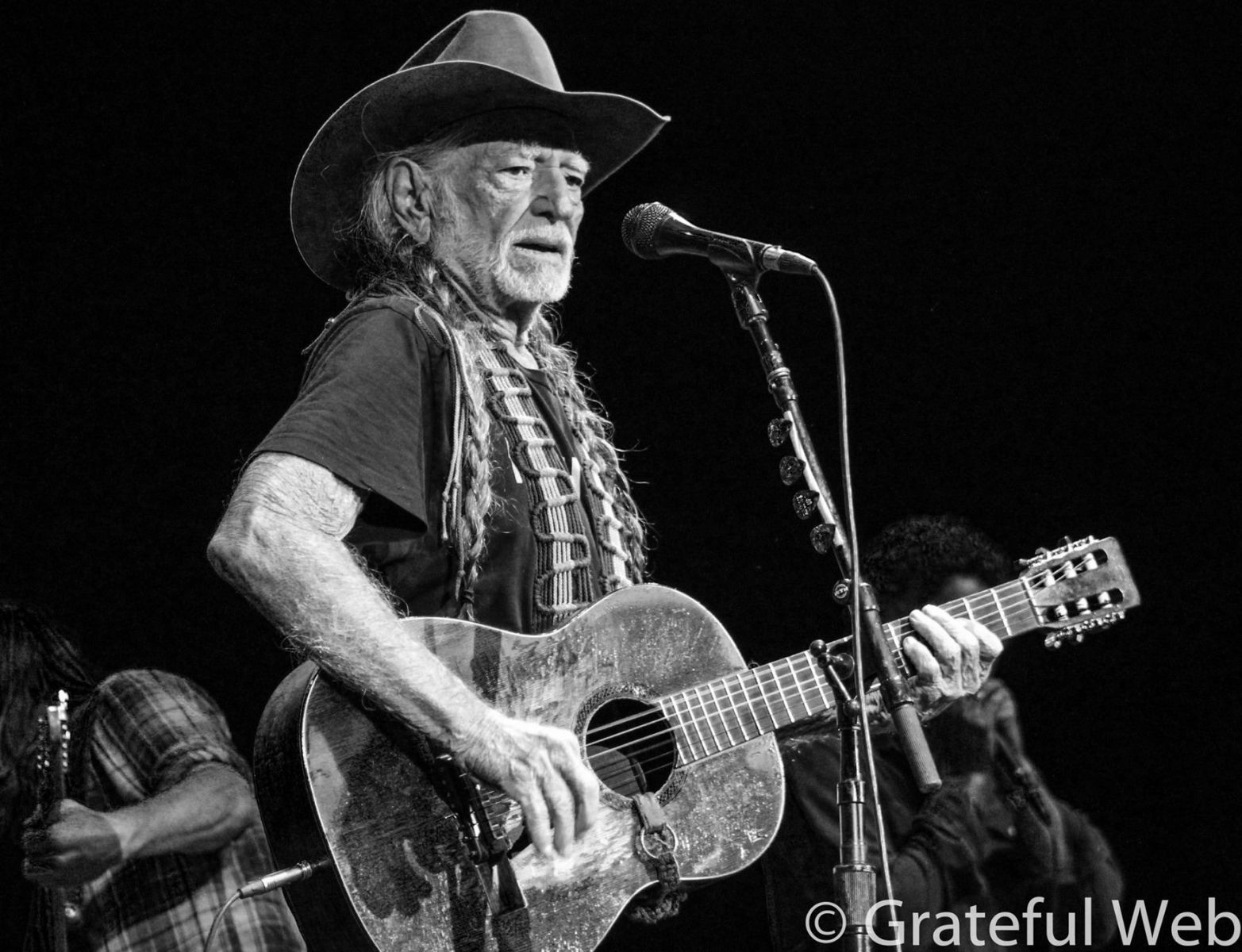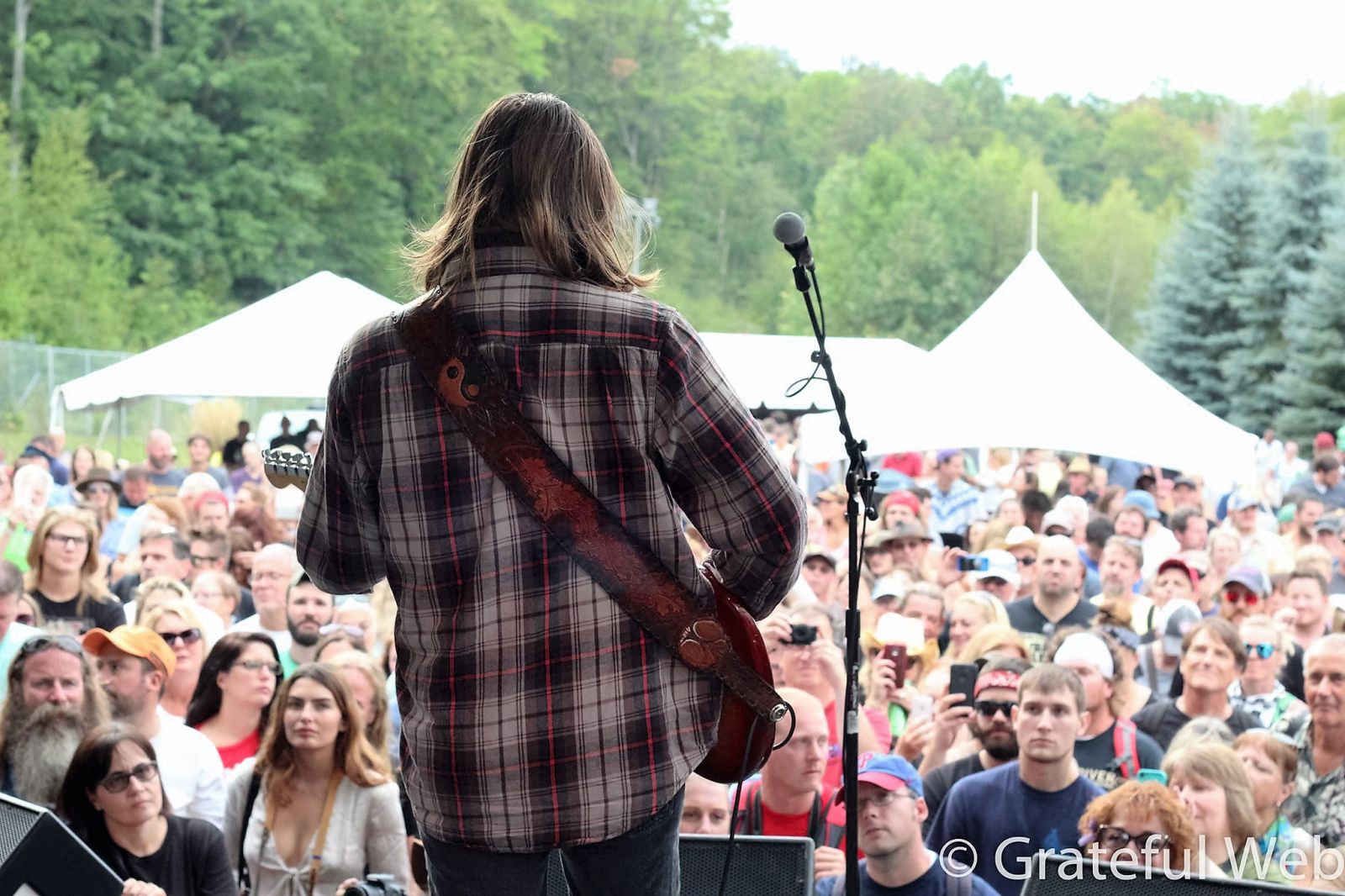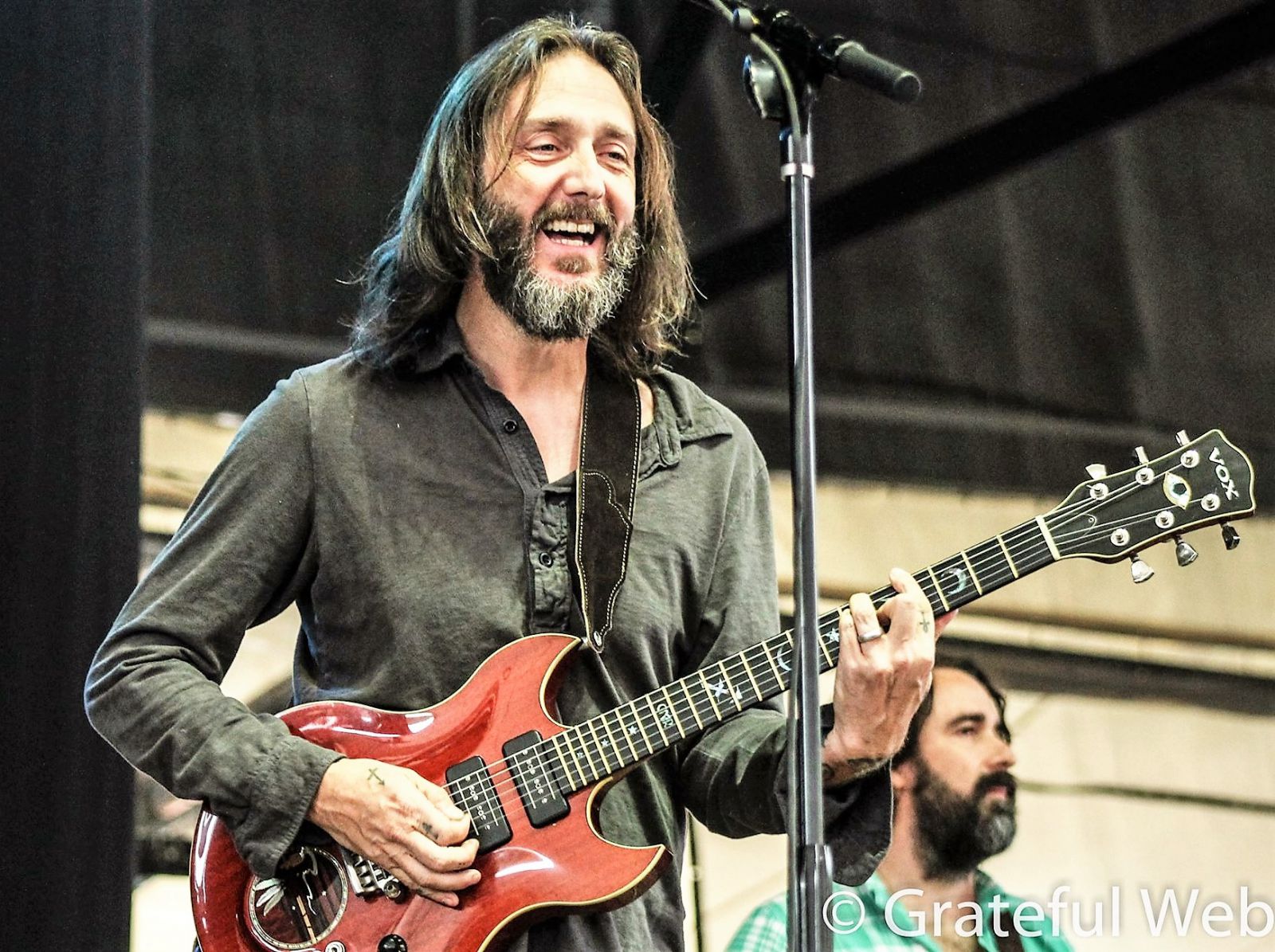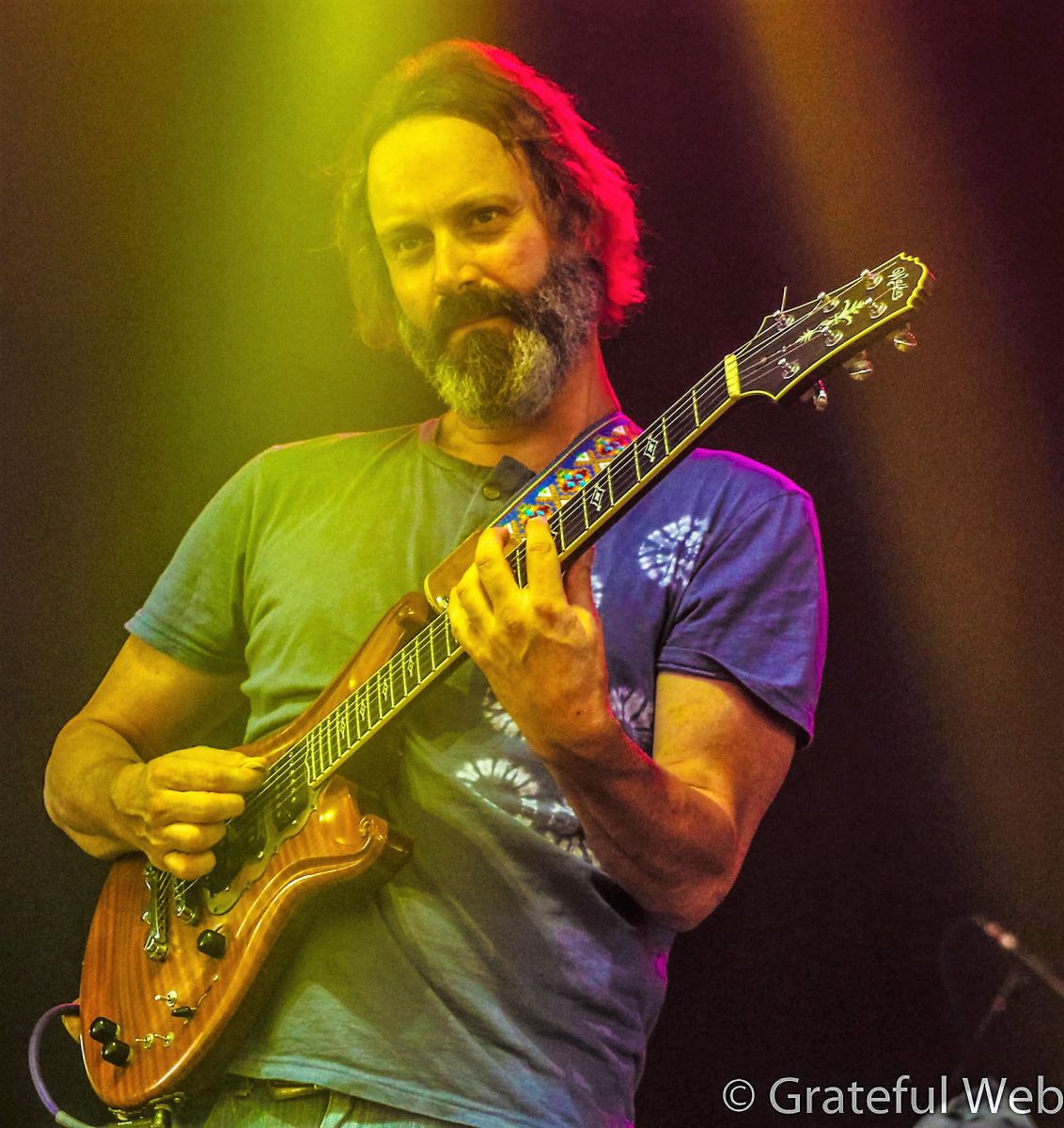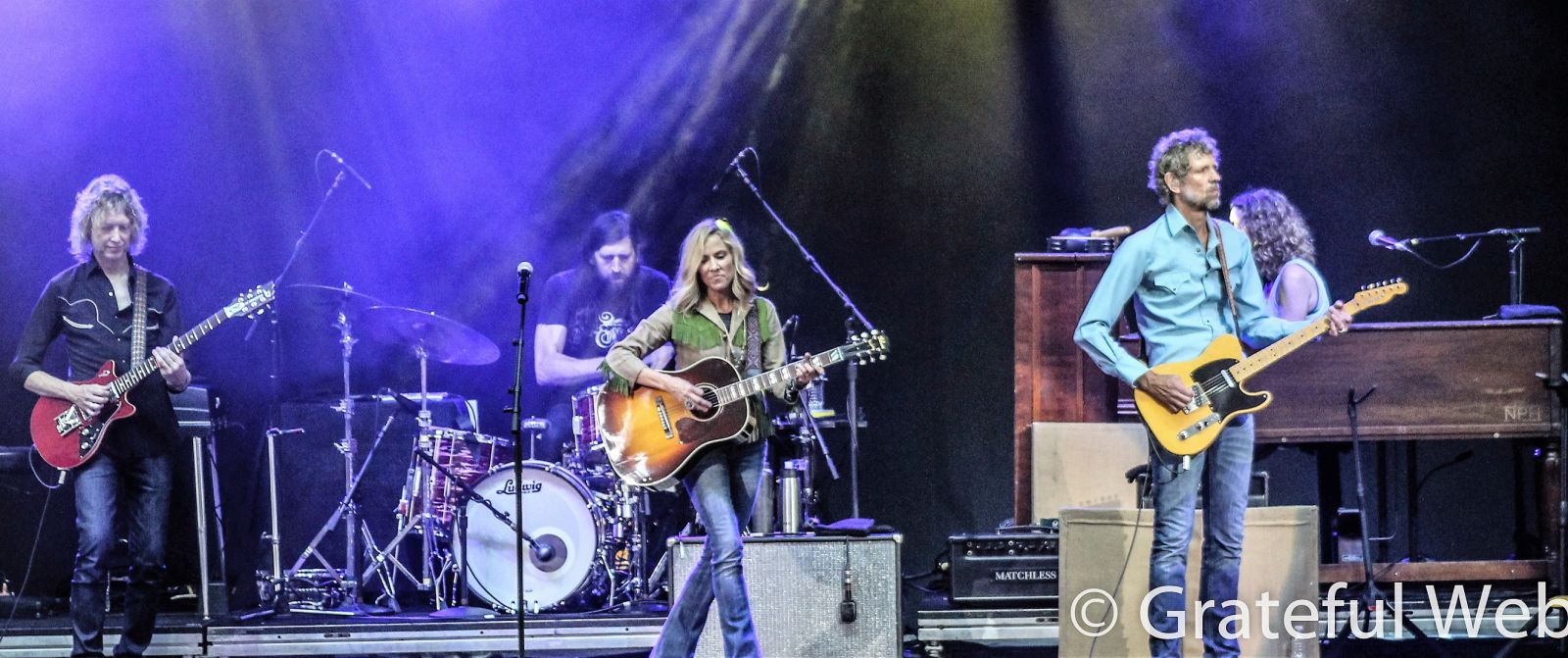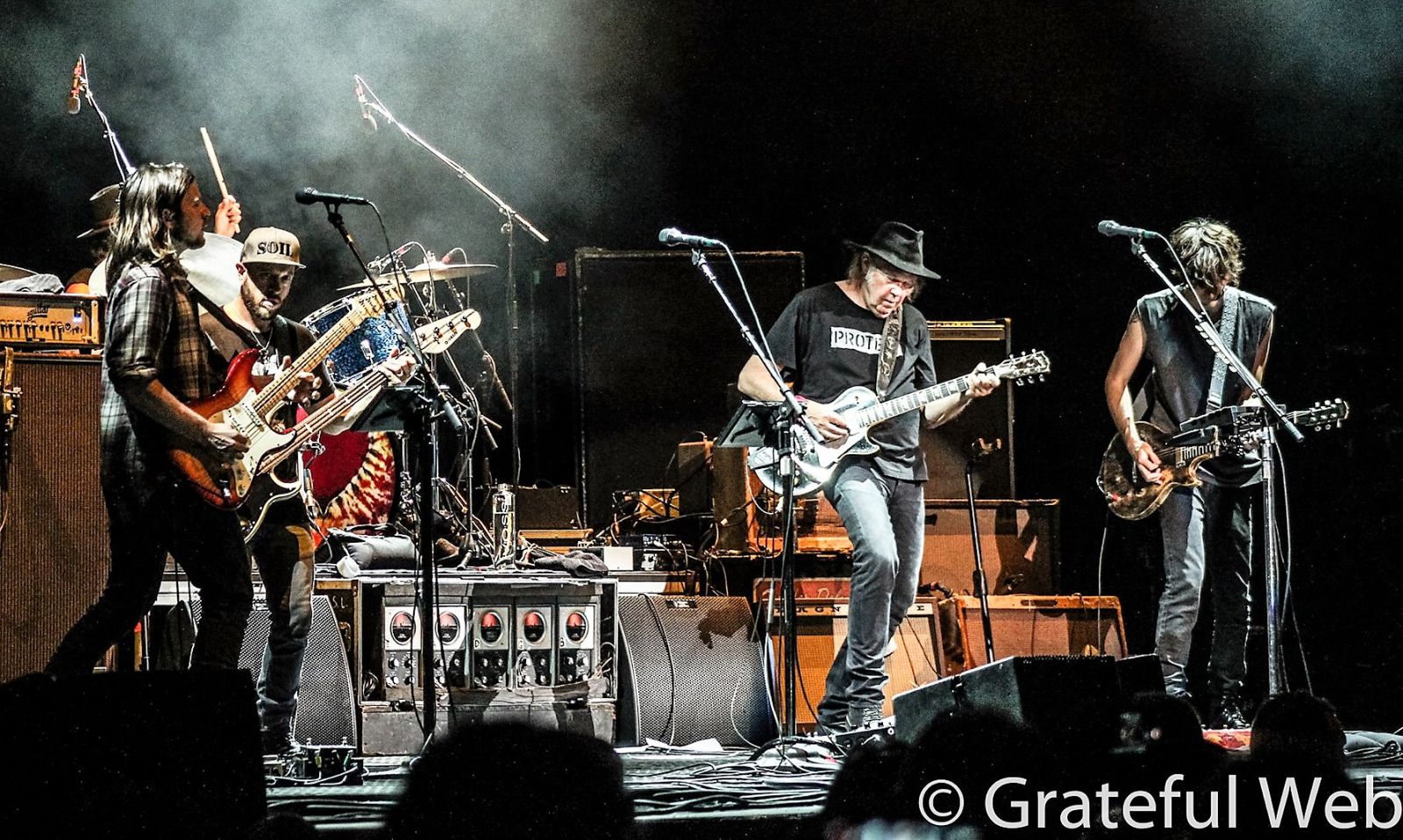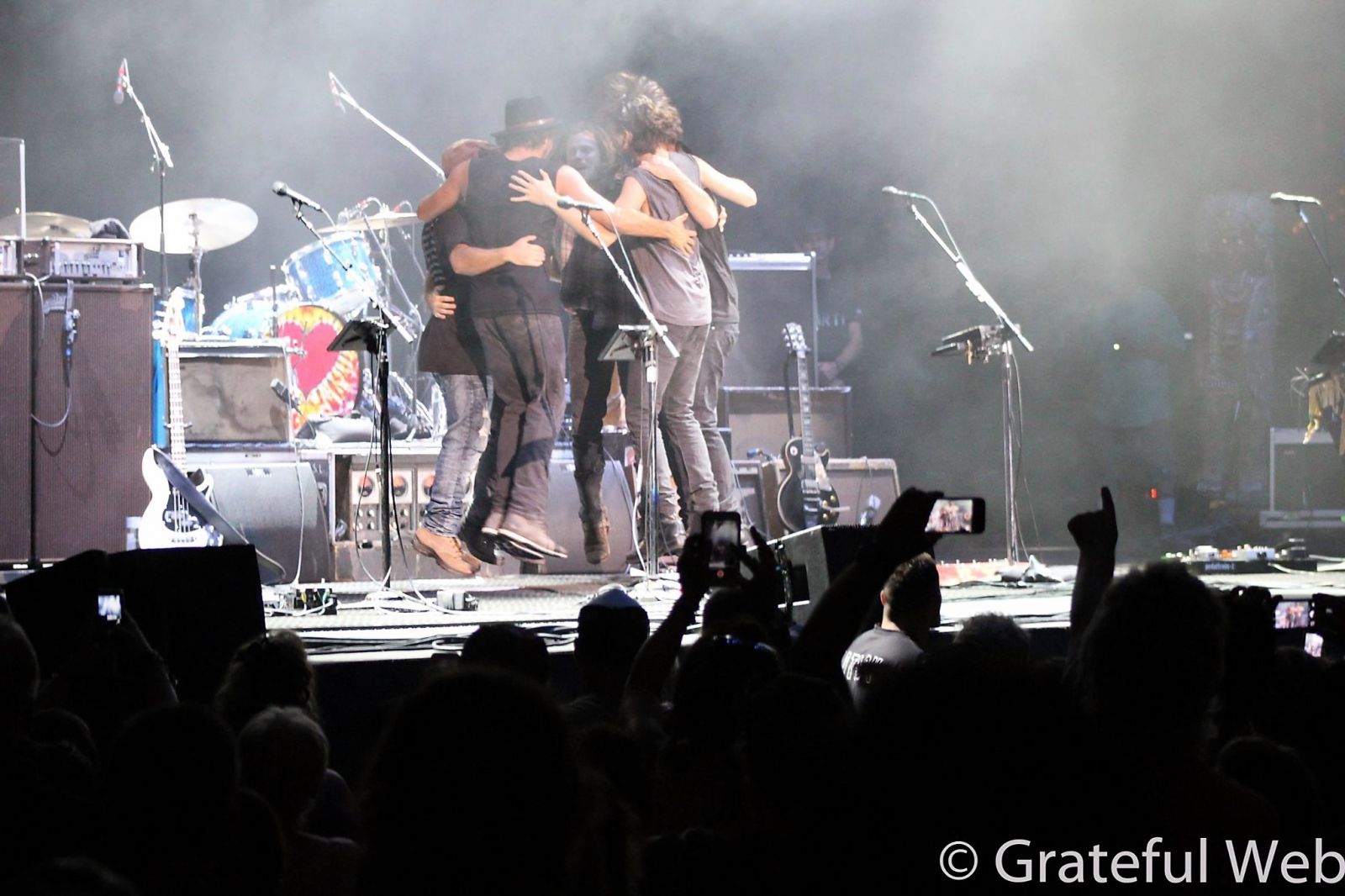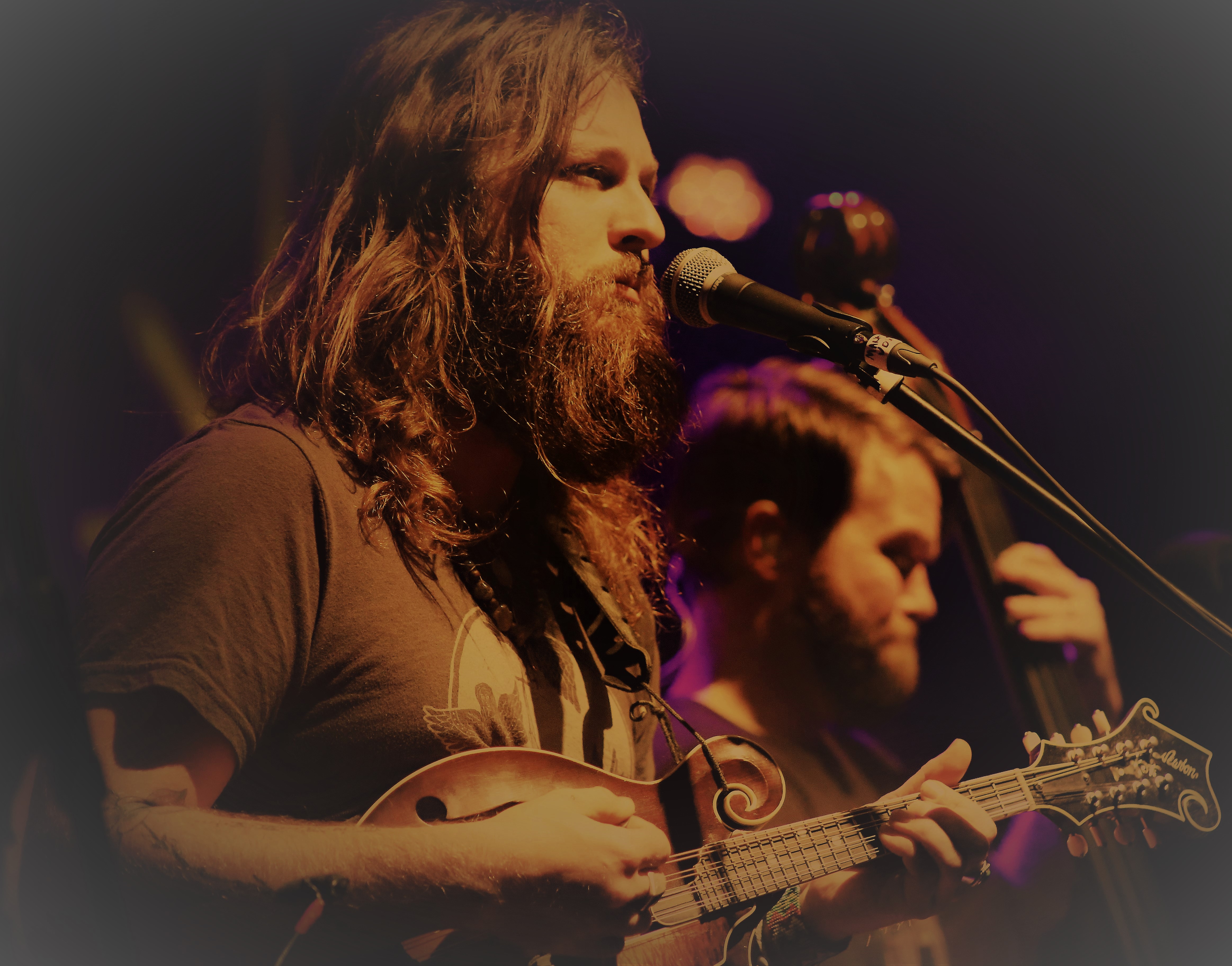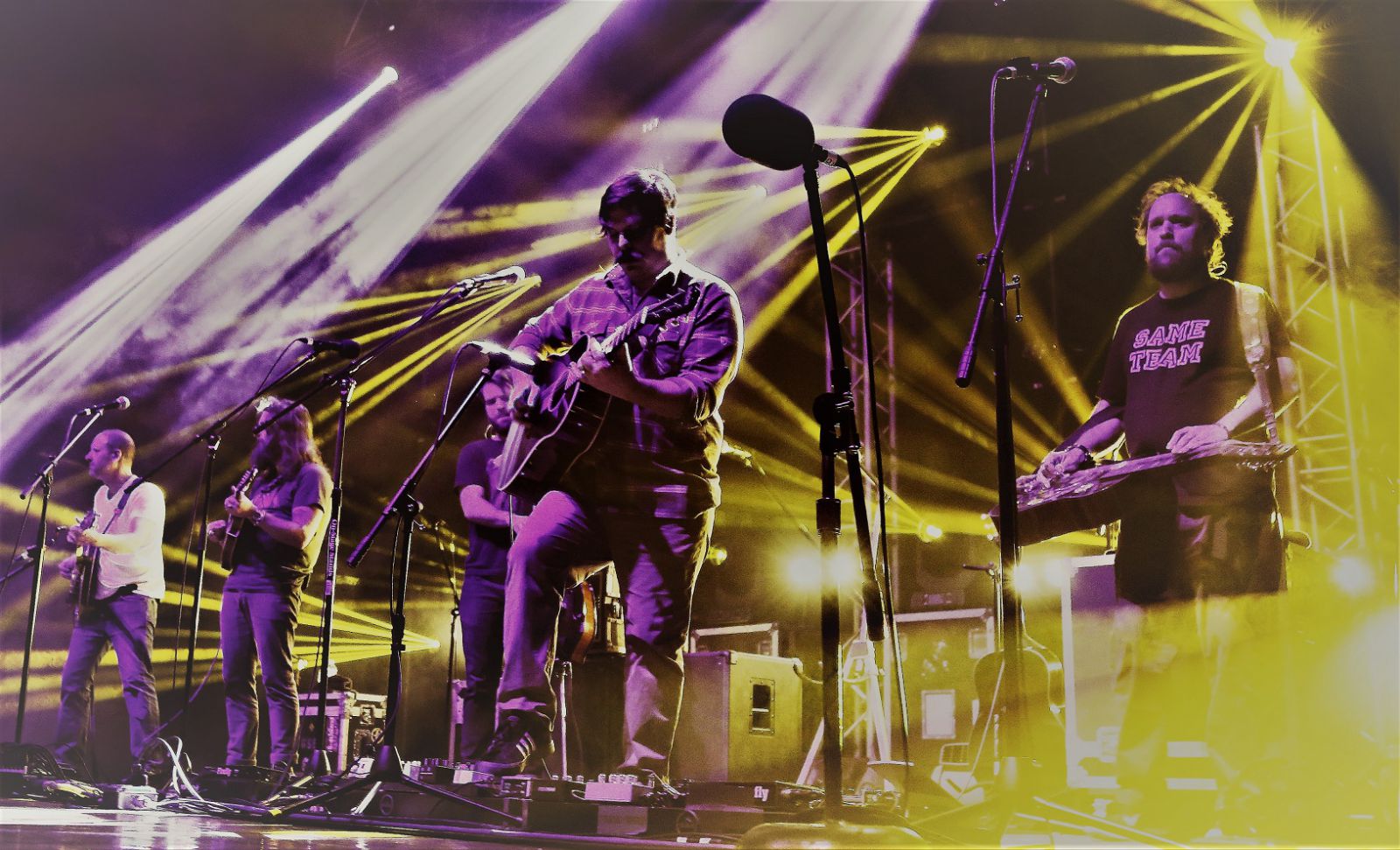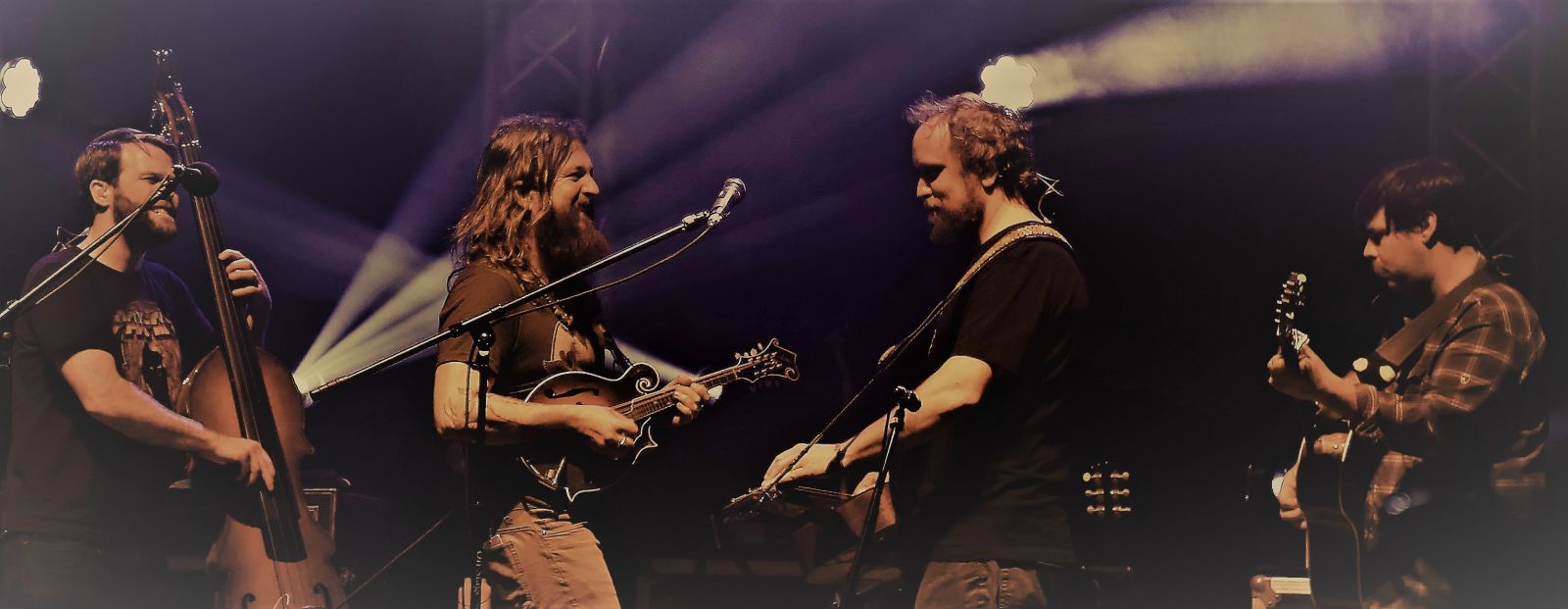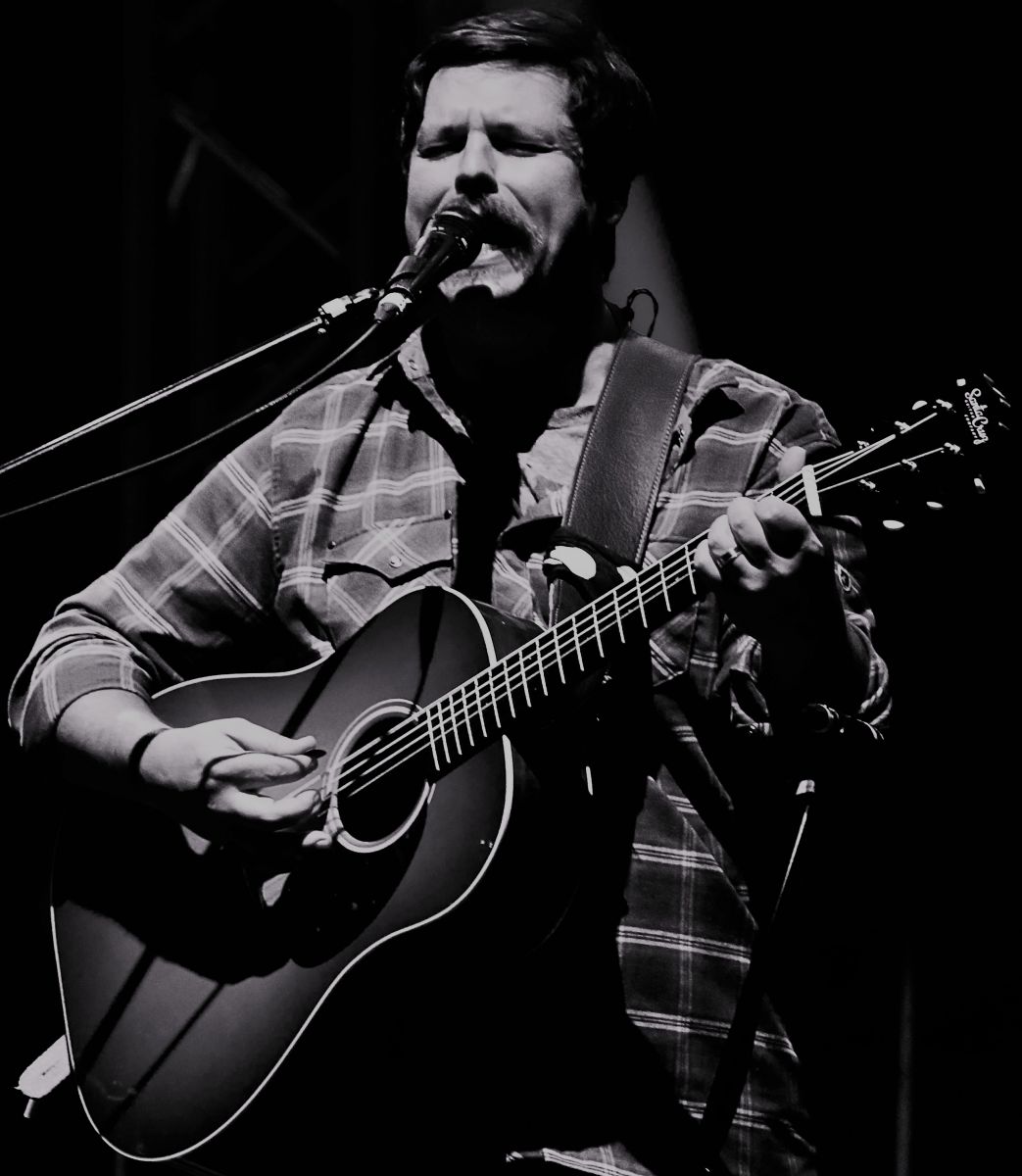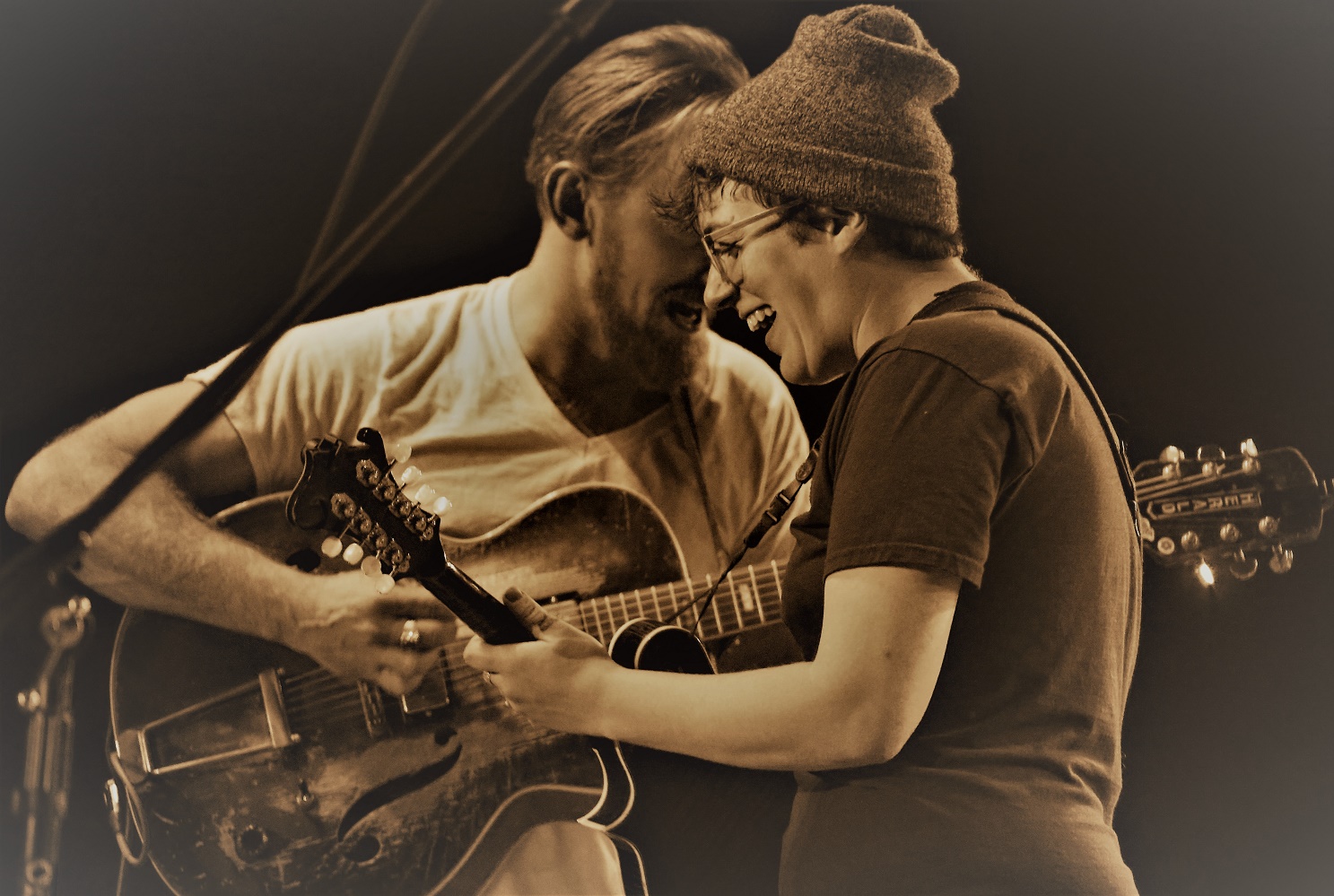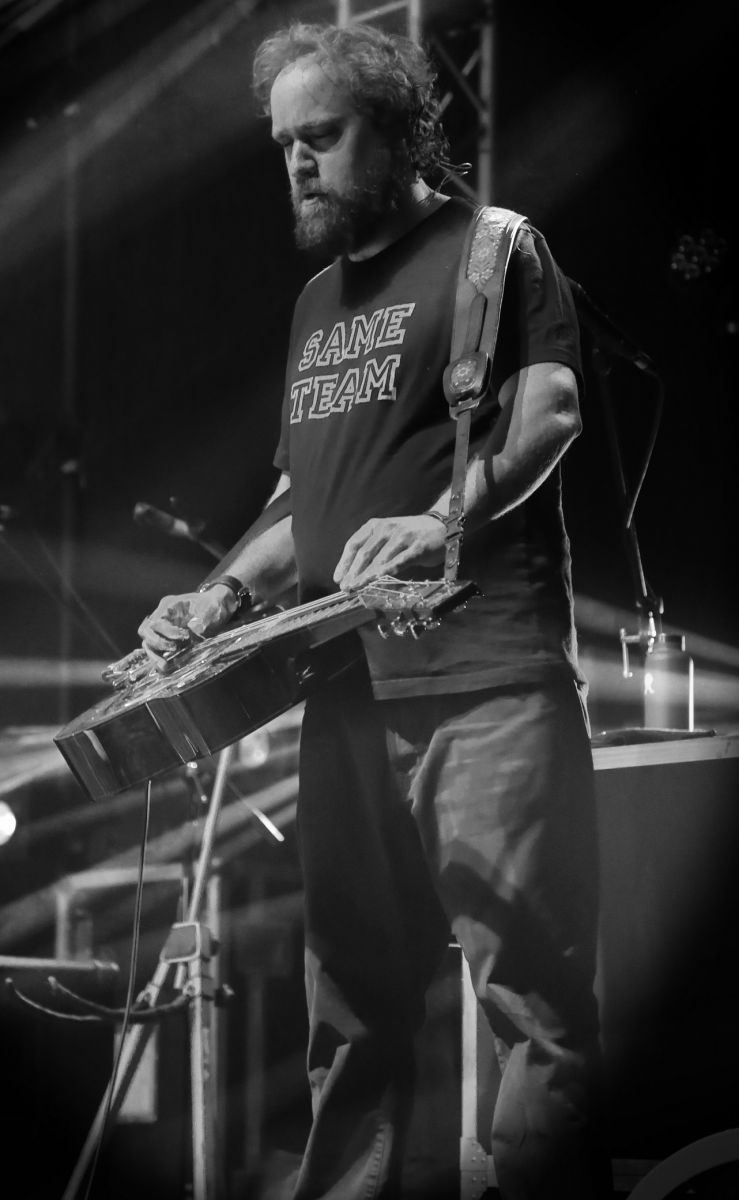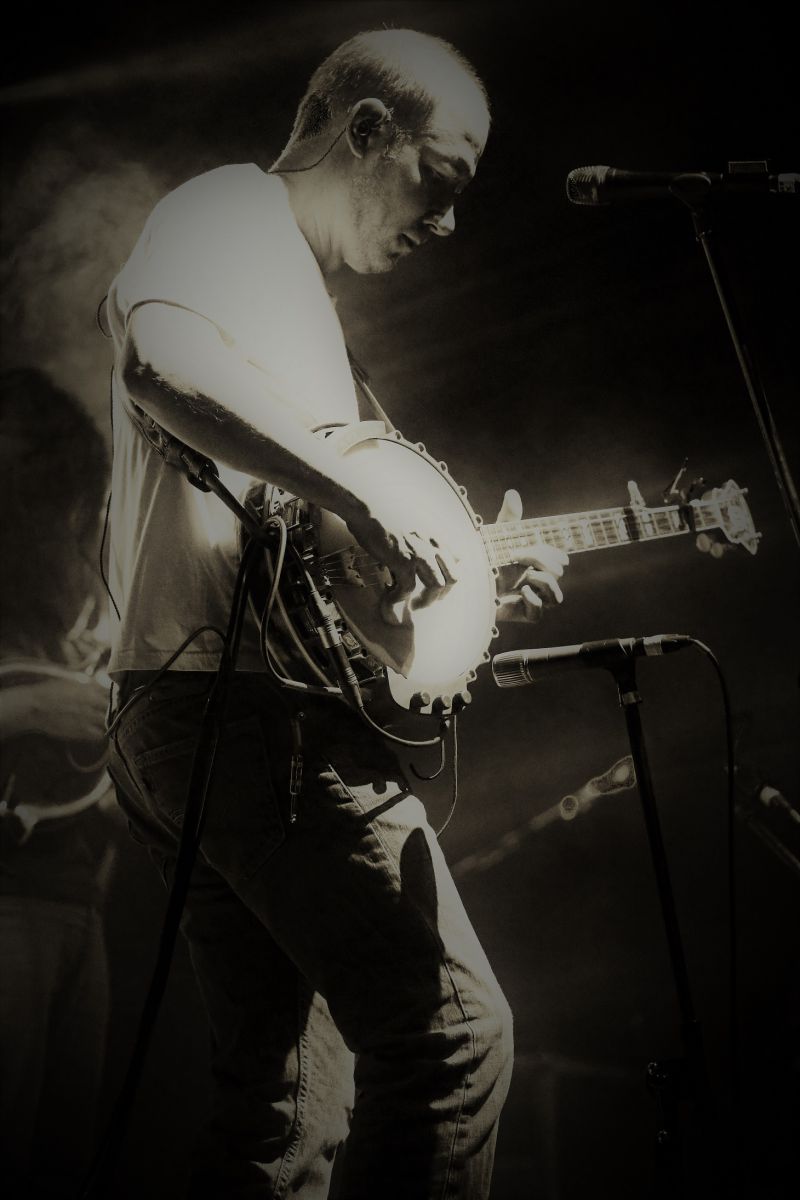If you followed any of the countless jam bands that dotted the American musical landscape in 2015, it’s likely you ran into Tom Hamilton at some point last year. As the guitarist and vocalist for four touring bands: American Babies, Joe Russo’s Almost Dead, Billy and the Kids, and Electron, Hamilton rarely had a night off from the scene.
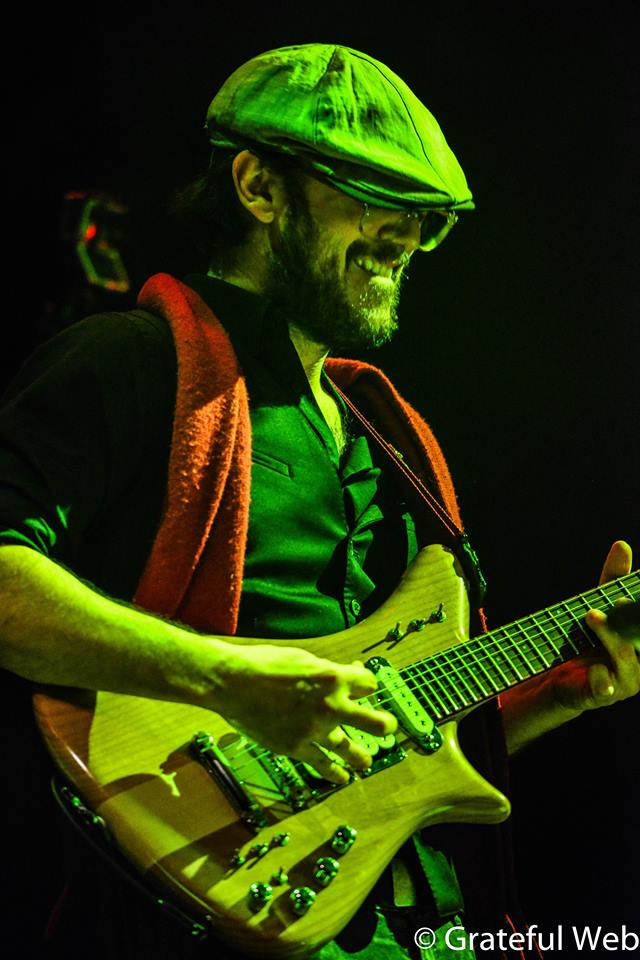
Rolling Stone perhaps said it best when they named him the “MVP” of the large, Allman Brothers-curated Peach Festival, lauding his flexibility in a number of bands, and saying his “nuanced playing was ethereal and inspired, subtly tailored for each artist with whom he shared the stage.”
Another way to say it is that fellow musicians trust him.
At 36, Hamilton has clearly settled into something. Relaxed, at peace in his work with his main project, American Babies, and an almost constant touring schedule, Hamilton seems well-suited to keep it all in the air, all spinning.
I talked to Hamilton last month in the Fishtown section of his native Philadelphia, just around the corner and a few days removed from where Joe Russo’s Almost Dead left a wild New Year’s Eve crowd in a puddle after a mind-blowing show at the newly-opened Fillmore. We talked about a whole host of topics in a sometimes jovial, sometimes direct, sometimes difficult conversation.
First of all, Hamilton’s a great storyteller, as you might expect of a musician and producer almost two decades deep into a career that spans for the early jam-tronica of Brothers Past and his producing Disco Biscuits records to the more recent high-profile jamming with members of the Grateful Dead. There’s a hint of the frenetic pace he keeps about him, but he seems comfortable with the life and career he’s carved out for himself, even as the buzz around him has continued to grow.
He’s assertive though. And he has a clear artistic vision of putting his internal struggle out there, reaction be damned.
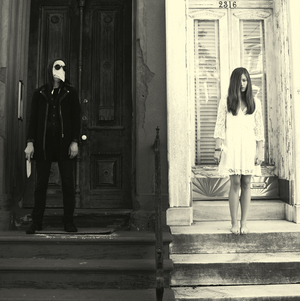
We talked extensively about the creation of his excellent new American Babies record, An Epic Battle Between Light and Dark, which the Royal Potato Family label will release on March 18. Hamilton talked about the emotions that spawned it, the groove that he hears and writes to, and the need to keep pushing with each record to make something new.
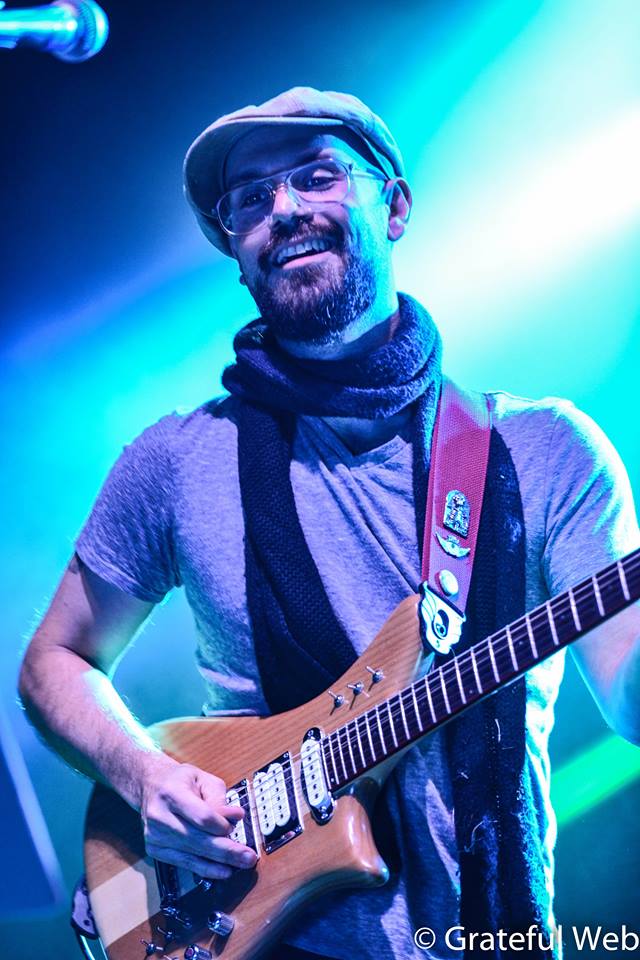
Best known as a gifted improvisational guitar player, Hamilton seems to be blossoming as a songwriter and producer with each recording, and An Epic Battle is his most assured work yet.
Even his singing, which was often the least powerful part of his previous work, has matured, and An Epic Battle finds him at his least affected, most natural, most confident.
We also talked about what it’s been like to step into a peer role with childhood heroes like the Grateful Dead, and how that experience has created a new and totally unexpected chapter of his career. Like any good prospect, when he got his call up to the majors, Hamilton made his mark.
That’s because as a guitar player, Hamilton can slip into almost any set of clothes. As we discussed, his signature in-the-groove playing is clearly informed by his early days as a drummer. You watch him play a familiar Dead tune live and think there’s no way he can come out of that somehow familiar, but simultaneously innovative, lead and get back to the rhythm structure.
But there he is, every time. Never jarring, always in the pocket.
Of course, jam band guitarists don’t struggle with the live setting as much. That’s why they’re in jam bands. It’s the transfer to the studio that’s usually the hard part. Capturing the spontaneity of improvisation in an environment defined by starts and stops is notoriously difficult. That’s why I was interested in how An Epic Battle turned out to be such a tight and cohesive record.
GW: I thought [2013’s] Knives and Teeth was an interesting hybrid of your Brothers Past work and the newer direction of American Babies. There was a decent amount of acoustic guitars on that record, but this new record, An Epic Battle Between Light and Dark seems a step in a pretty different direction for you—much more atmospheric than your previous record. I really liked it, and I was surprised by it a little, especially after these last couple of years of playing a lot of shows as a guitar slinger. How do you see it as a finished project?
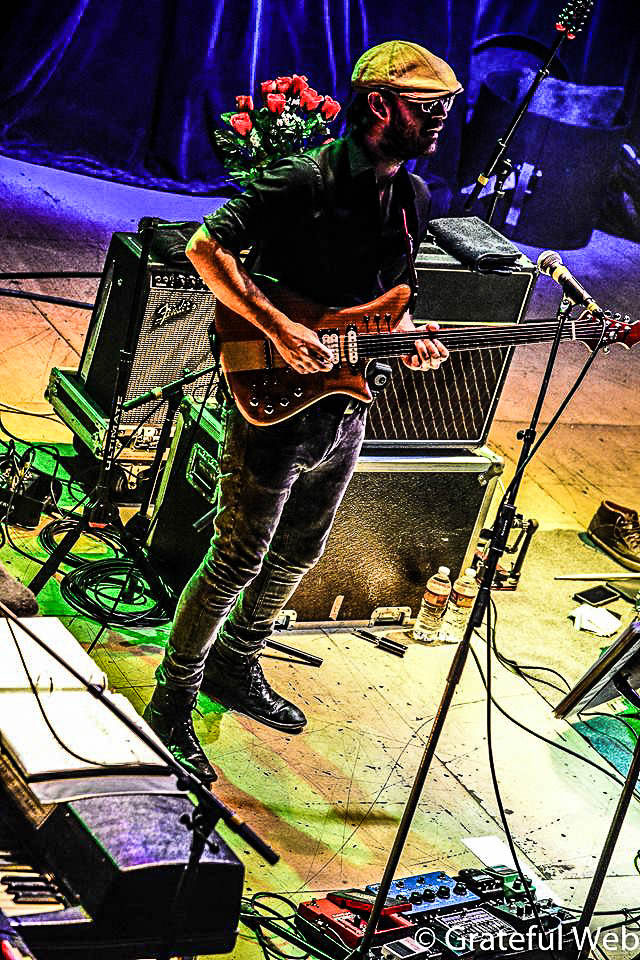
Creatively, it’s exactly what I want to be doing. I’ve got to get comfortable going into territory I’m not comfortable going into. I’m not a 23-year old kid, writing songs in my dorm room about love. I’m 36 years old. I’ve been making records for a while. I don’t want to repeat myself. It’s hard enough not saying something that somebody else has said before. I certainly don’t want to say anything I’ve said before.
As a kid, whatever it is you’re into, you say, “I’m going to make music like that,” and it’s probably going to sound a lot like what you are listening to. As my career has gone on, I’ve actually listened to less and less music going into making a record. Going into this record, I just wanted to make a record that sounded cool—that I wanted to play live, that I wanted to listen to. That’s the bare minimum of expectation I can put on myself.
The music industry has changed and I’ve changed. I have no allusions of trying to make some hit record or some bullshit. That’s just not the world that I’m in. I’ve afforded myself a career; I have a job to do.
GW: There are two absolute anthems on the record, the opening track “Synth Driver,” which you guys tested the waters with and people seem to love, and “Fever Dreams,” which is probably my favorite song you’ve recorded. Tell me about writing and recording those two—they are kind of epic.
That’s funny; “Synth Driver” is probably my favorite thing I’ve recorded. It’s interesting that you pick those two. “Synth Driver” was the first one we wrote. I made the record with Pete Tramo. We worked together on the last album and just clicked, so I was stoked to make a record with him. So that song was the first thing we did; we had the whole thing done and loved it, and then we lost our hard drive and we had to recreate everything.
It was devastating to say the least. But when we got it back together, we knew it was the sonic signature of the record.
When we got to “Fever Dreams,” that one was very different. Originally it was just mostly acoustic. The final version is different, but even after working on it, it was still decidedly different from “Synth Driver.” So those two were the sonic ends of the record.
In deciding what was going to fill in between those two were the gradients. We had about 16 songs to work with, but we were deciding what made the most sense.
GW: So, for people who know you as a guitar player first, it’s interesting, because in “Oh Darling” and also in “Bring it Close,” there are “Tom Hamilton guitar solos”—really good ones. But they are down in the mix a little, with the synths on top. Is there a consciousness in American Babies music to not make it about Tom and his guitar?
I don’t really give a fuck about the guitar. [Laughs] It’s not about ego. It’s down in the mix because it belongs down in the mix. Louder than that would be gratuitous. Serving the purpose of the song . . . I don’t need to rub it in people’s faces. That’s not what it’s about.
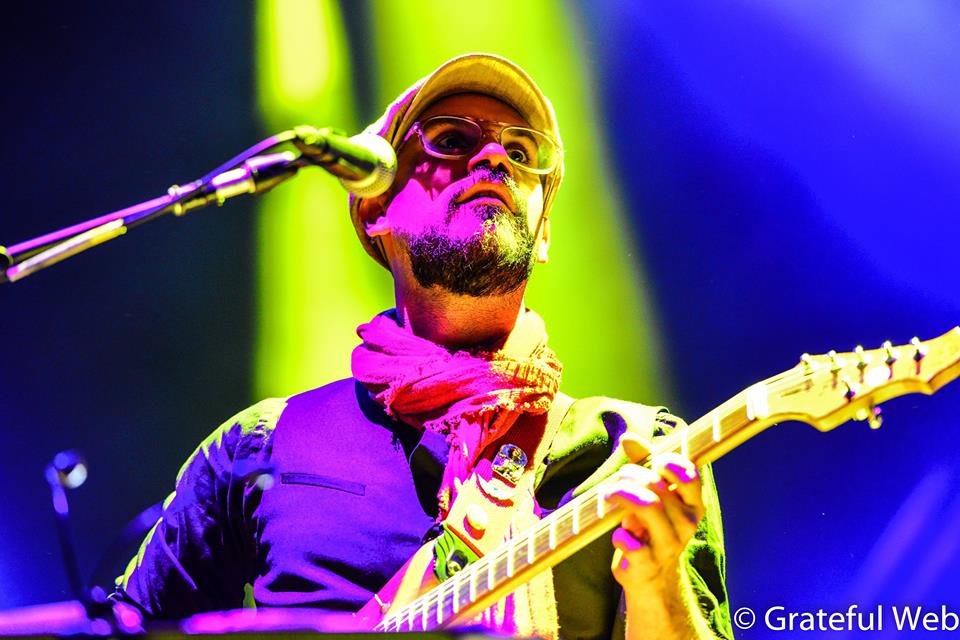
GW: What it does seem to be clearly about though is the struggle. I mean the title is right out there. And many times the light-dark thing happens within a song. There will be heavy chords like the starting of “Oh Darling” broken by this sporadic lightness. Is that a thing for you—do you turn on a dime emotionally?
That’s life, man. [Pauses]
Yes . . . it is me as well . . .
GW: Okay, let me ask it in a more direct way. To me, it seems like a very personal record. Were you going through a bunch of shit when you made this record?
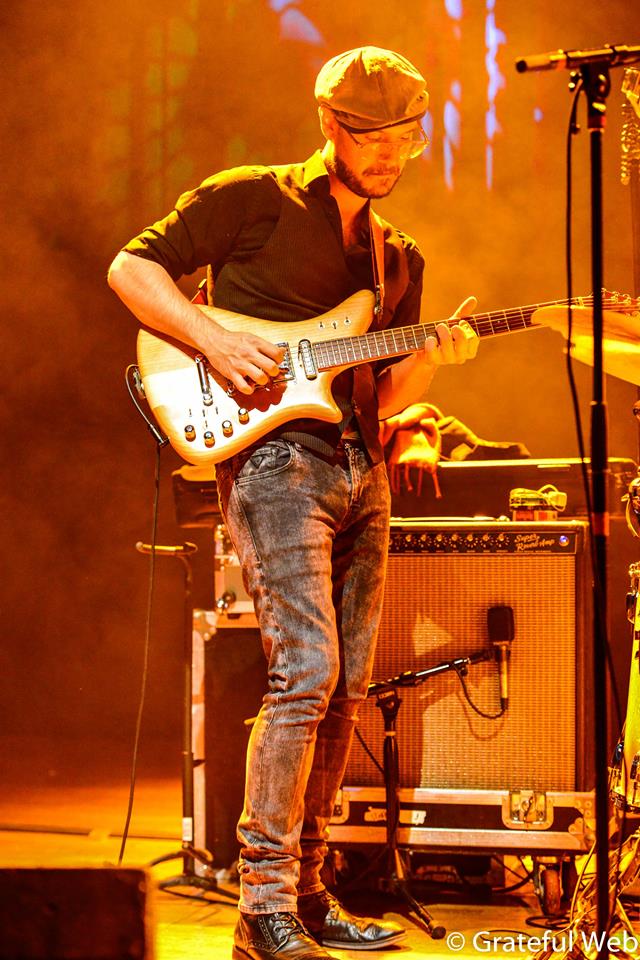
[Pauses] The girl I was with before I made that record, I was with her for a year . . . she just disappeared. I came home from the road and she had left. I mean, she was going through some difficult stuff. She was ill.
But you know . . . um . . . I mean, I’ve dealt with stuff my whole life too, depression. You know, it’s tough. And then Robin Williams killed himself around that time as well, and that just ruined me for a long time.
GW: I’m sorry. I noticed that the album is dedicated to him.
Yeah, that guy. I really looked up to that guy; I mean I always aspired to play guitar like he told jokes.
GW: You know with all that happening, you aren’t letting yourself off the hook on this record though; there’s the album cover imagery for one. And there’s a very prominent line in “Fever Dreams”: “I think I’ll go wrong somebody so I can feel alive.”
Well, I mean we’ve all done it. I don’t know what it is. Think about what we do at the end of relationships. People have this thing with self-destruction. It’s the therapy. I mean with me it was always self-destruction, but some people are destructive towards others as well. I mean there’s something that makes us feel better—doing something stupid . . .
GW: But how cathartic is it—getting in the studio, playing out live as much as you do?
None of it is cathartic. It’s not. I admire people like that. But to me it never goes away. I don’t get the thing where like, “I got that out, it’s in the rearview.” We’re all just in it. We’re dealing with it. I accept it for what it is.
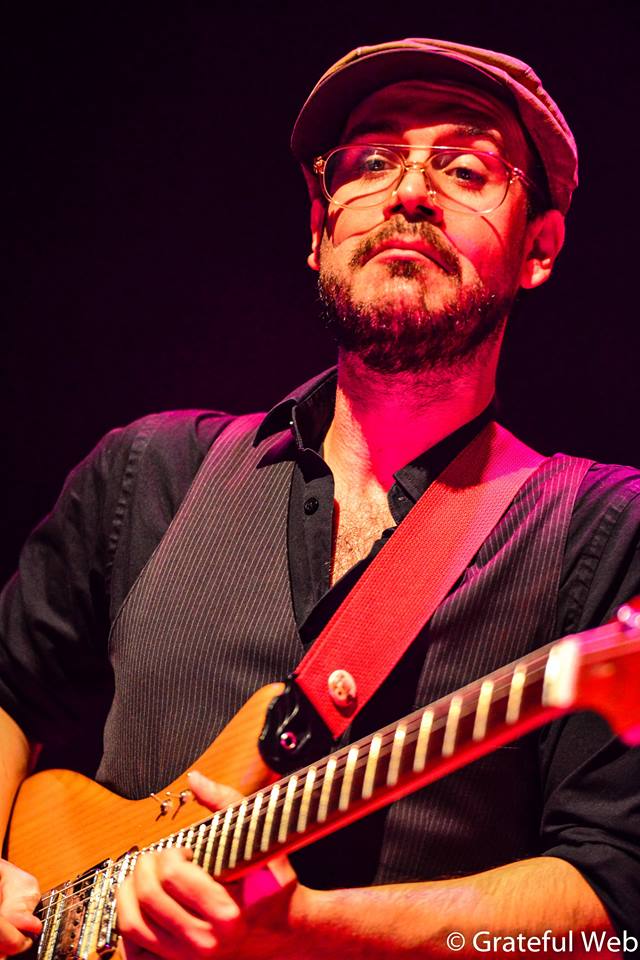
I mean the job is to tell it. But it doesn’t provide any relief. Cathartic is your word, not mine. I mean, it does provide fodder, inspiration. It makes it real. To deal with it, to put it out there, with the hope that somebody out there can feel better to hear it.
We all owe ourselves self-realization. That’s the point of it. In accepting who you are in such a public platform as this, hopefully it helps other people accept who they are.
GW: I asked Bill Kreutzmann [drummer for the Grateful Dead] what he thought about you, and here’s what he said: “Tommy is a real fun player, very energetic & synergistic. Big ears.” What does that mean to you—especially coming from him?
[Pauses] That freaks me out. What do you say about that? I’m flattered . . .
GW: So what’s that been like, these last few years, getting to play with people like that, to play with people that you listened to in your bedroom as a kid?
It wasn’t even an option. It’s insane. It’s crazy.
It’s easier than I thought though musically. I’ve been playing with those guys my whole life. They just didn’t know it. I mean when I’m playing with Phil [Lesh], or Billy, or Bob [Weir], when they do shit, it’s like “Oh, right! That’s what you do there!” In my head I’m anticipating: “I wish they would . . . oh, yeah there they go.” It’s so funny, I was playing with Weir and he started doing his little move . . .
GW: His step-up?
Yeah! I looked over at [Disco Biscuits and Billy and the Kids’ keyboardist Aron] Magner, and we’re just laughing, both just like “Holy shit. He’s doing it!”
GW: How do you think you got that opportunity in the first place? I mean this is a seminal time for the Dead and its offshoots.
.jpg)
It’s weird, but you know, what’s that saying about luck? It’s hard work . . . and opportunity meeting? Whatever. The fact that I know that material so well; I was never one of those guys who listened to the Dead and just listened to Jerry. I went through years of listening to just Phil, just Bob, just Jerry.
I play all the instruments, so I know each one of their individual styles so well. I mean, I know what those guys do. So when we play, it’s like “let’s dance.” That’s what improvising is, it’s a shared language.
GW: Speaking of Bill, you’ve talked about writing your music from the perspective of a drummer. It’s a different way of writing than most do it. But you and your brother both started as drummers when you were little kids. Did you write the music on this new album from that perspective still?
.jpg)
Yeah, I always think of the groove first. When Pete first turned on the synthesizer when we started to make this record—the very first sound I heard—I immediately felt a tempo, a groove, I felt everything. I was like, “that’s it!”
I think it was always just easiest to put the drums down first. When I was a kid, I had a little four-track my dad gave me. I didn’t know how to do anything. But I just figured out that it worked best for me to lay the drums down for the song and layer everything else over it. But that forces you to know every nuance of the song so you can just play it. I just forced myself to do it that way since I was, like, eight.
Feel is just a really important thing to me. A swagger. Groove.
GW: Are you sad to not be playing with Russo and Bill as much in 2016 as you take out the Babies and everyone has their “main” projects to get back to?
Yeah, but I’ll still play with those guys this year. It will slow down a little bit maybe, but we’ll still play. Who really knows? It’s hard to plan anything really solidly these days. You know, things just kind of happen in this business.
GW: Well I was wondering, I know you’ve finished this album. What’s was your plan of the timing of releasing it? Did you want to wait until we’re into the new year a bit to finish up touring?
Well, we were out playing with Greensky Bluegrass this past fall, and those guys are doing really well, so we knew we’d have a good sold-out run of shows, so we felt like it was good momentum build leading into releasing this one.
.jpg)
GW: So you’ve been doing this for 20 years or so now, and your career kind of coincides with the death of the industry—just as Brothers Past was getting started, the internet killed AOR. You’ve done it yourself most of the way. What’s it been like to mostly create your own path for all these years?
I mean, those things still exist. Look around the corner here in Philly: Kurt Vile, War on Drugs, they both have more major label record company contracts. And they so deserve it. Kurt is just an incredibly talented dude.
.jpg)
GW: “Synth Driver” in particular sounds to me like this great combination of the longing, bit of electronic darkness of War on Drugs and the soaring of a band like Clap Your Hands Say Yeah. What do you think of those two Philly bands?
You know, a lot of people have said the War on Drugs thing. I don’t hear it. To me, maybe Stereolab. Maybe if Stereolab, Jerry Garcia, and Ryan Adams made an album together. [Laughs]
GW: That was interesting to me what you said earlier about not listening to a lot of music when you are making a record. I would think it would be very different—that you would be immersing yourself in things around you.
Well, don’t get me wrong. I give myself freedoms to listen to and enjoy things. I’ll circle a date on the calendar. That’s the date you need to go make a record, and from that date on, I stop listening to music while I’m working. Well, maybe something that has nothing to do with what I do.
But right now, I’m clear. I finished a record. And now I can go back and listen to music again, just enjoy music again.






